winter jazzfest 2018 - marathon 1, nyc, jan 12
- photography by © Clara Pereira / text by Filipe Freitas
The renowned NYC Winter JazzFest, now in its 14th year, had the first marathon day on Friday, January 12th. The event, which explicitly supports social and racial justice, gender equality, and immigrants’ rights, comprised several artists whose voices united in protest against the troubled times we’re facing today.
alexis cuadrado - the immigrant
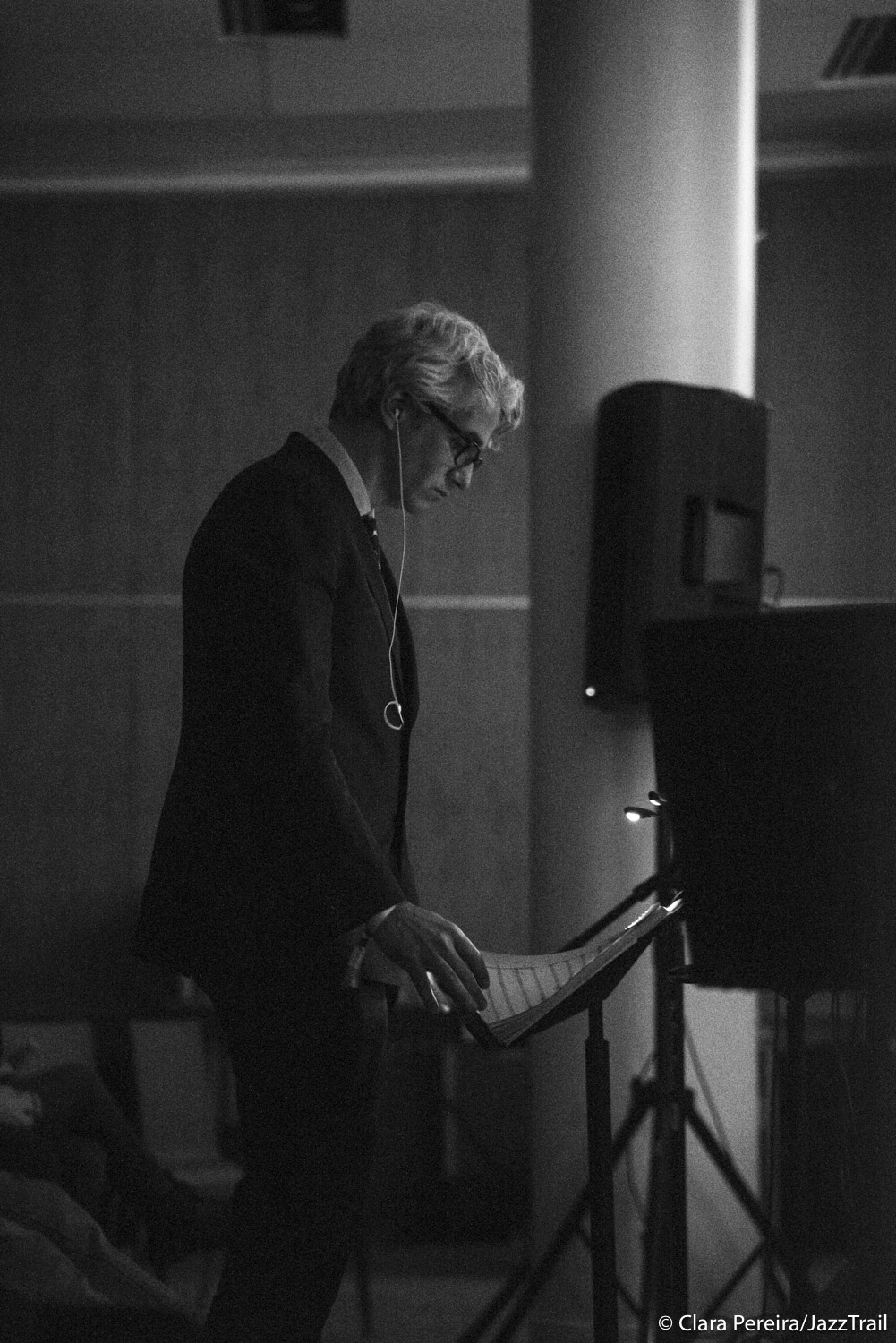
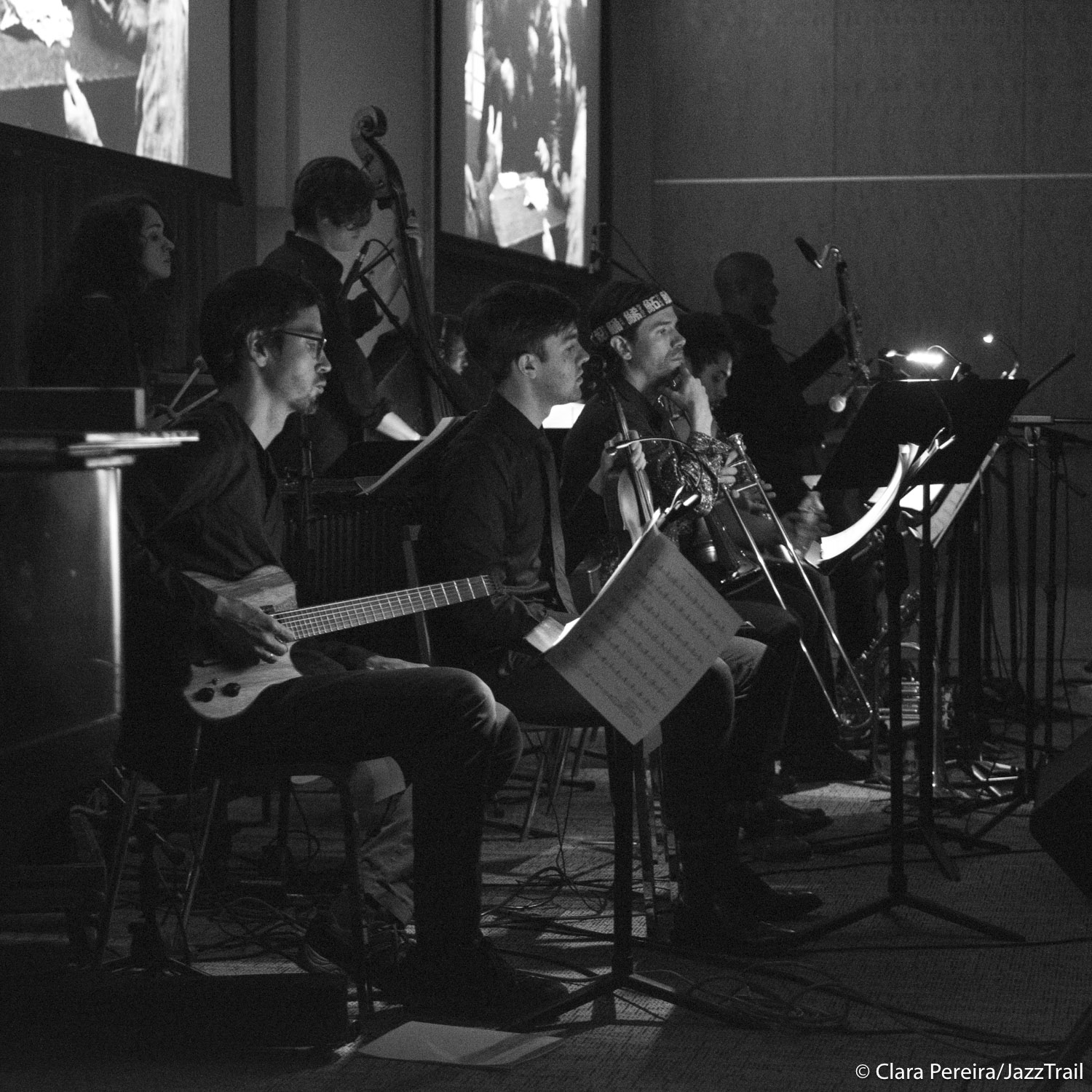
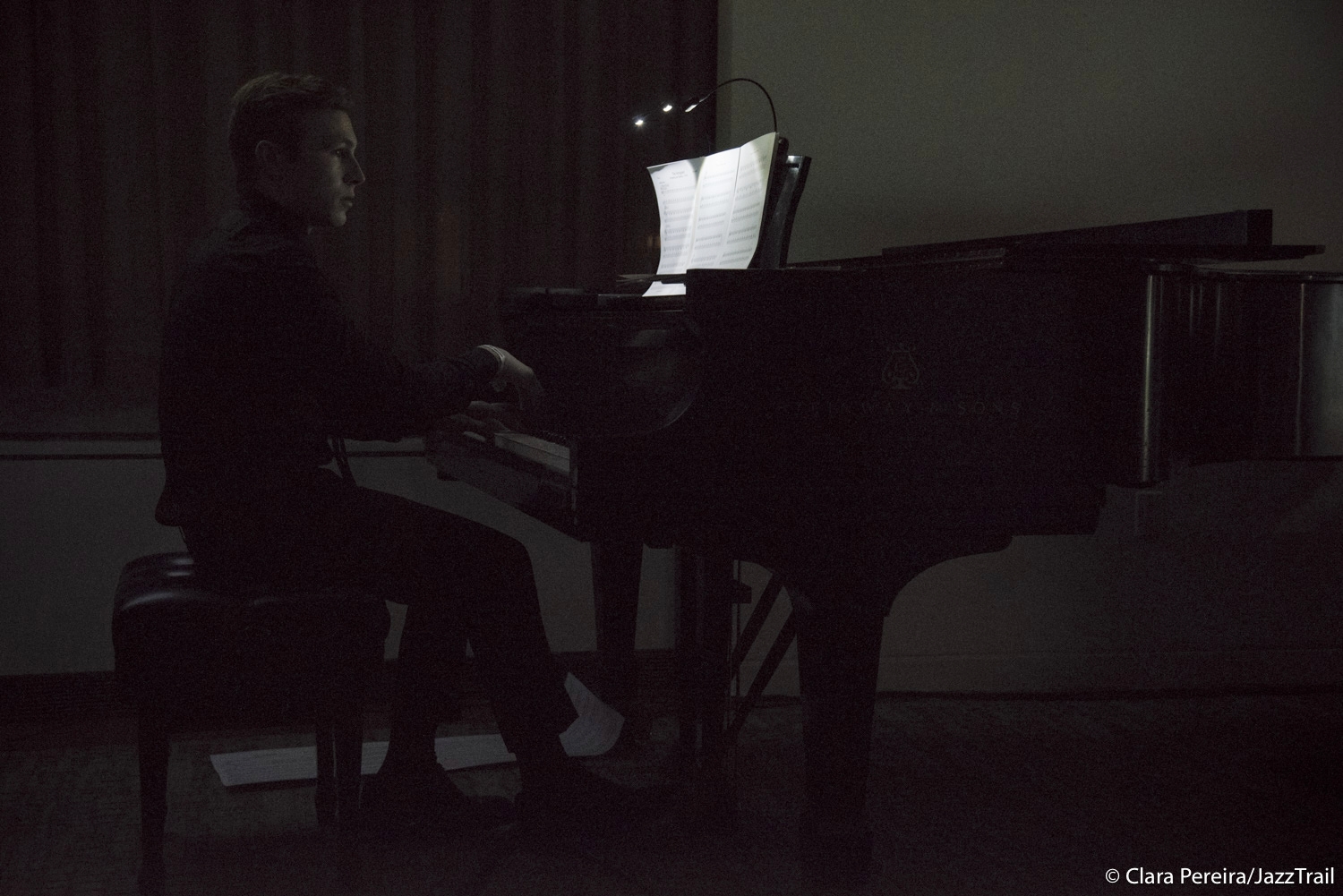
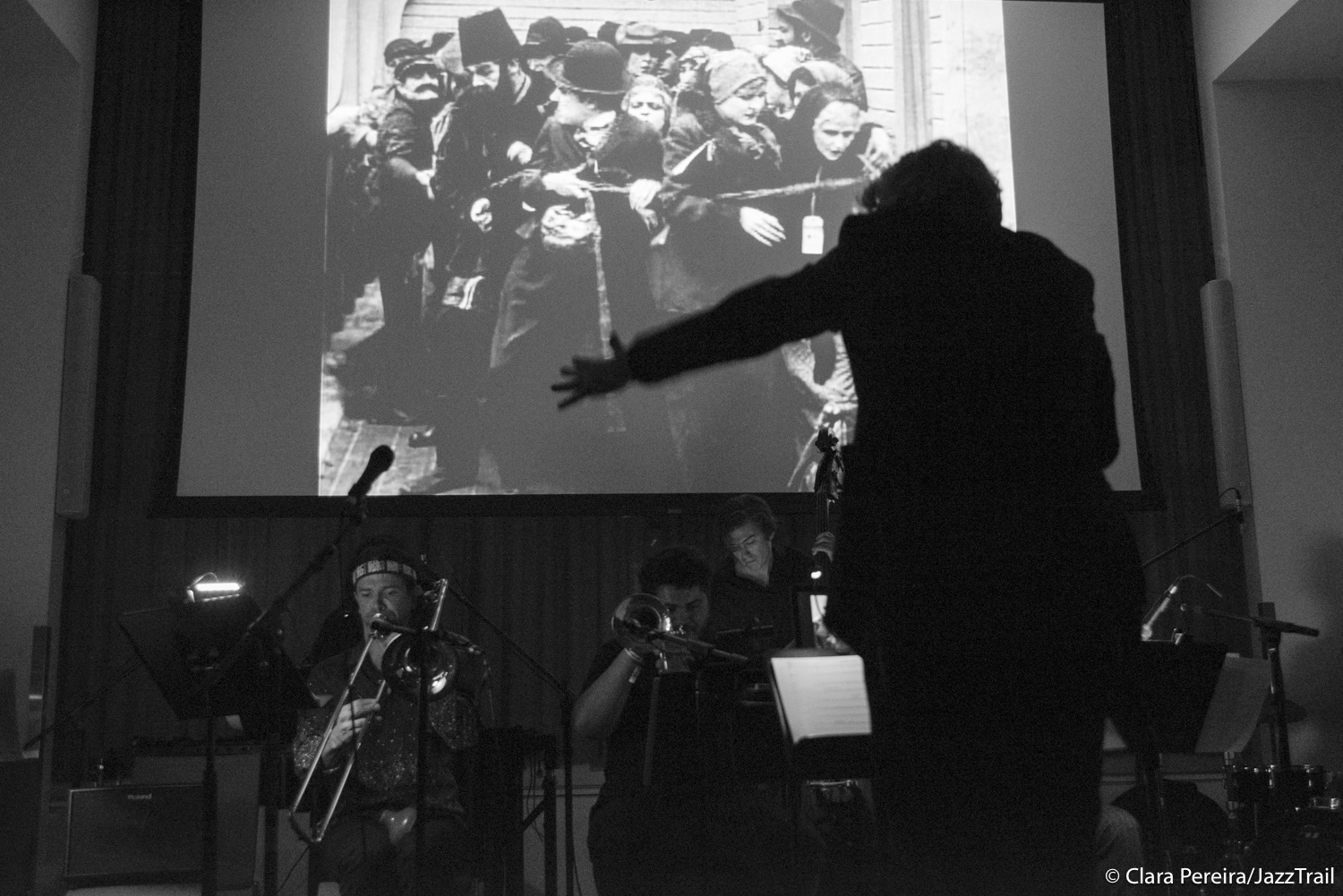
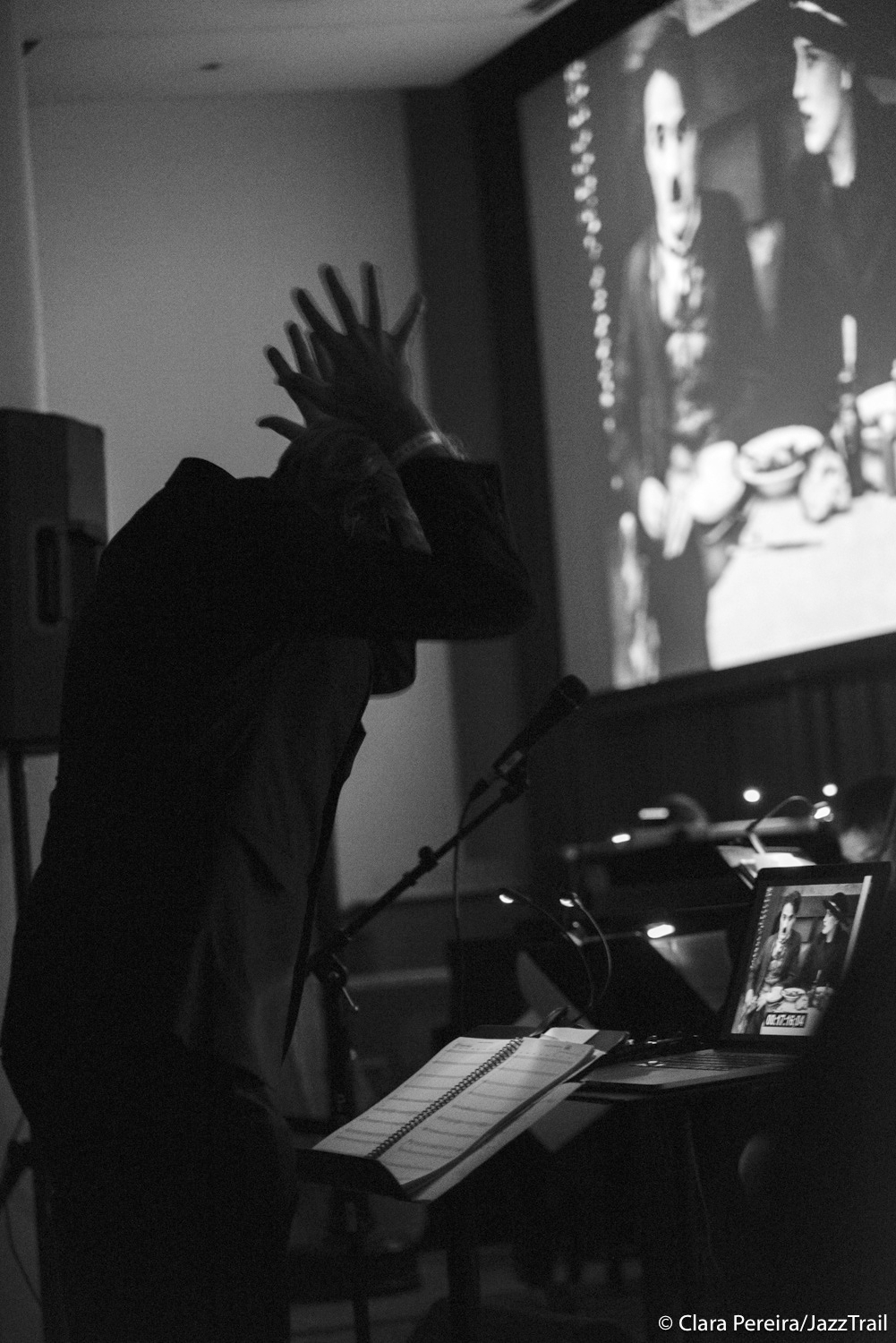
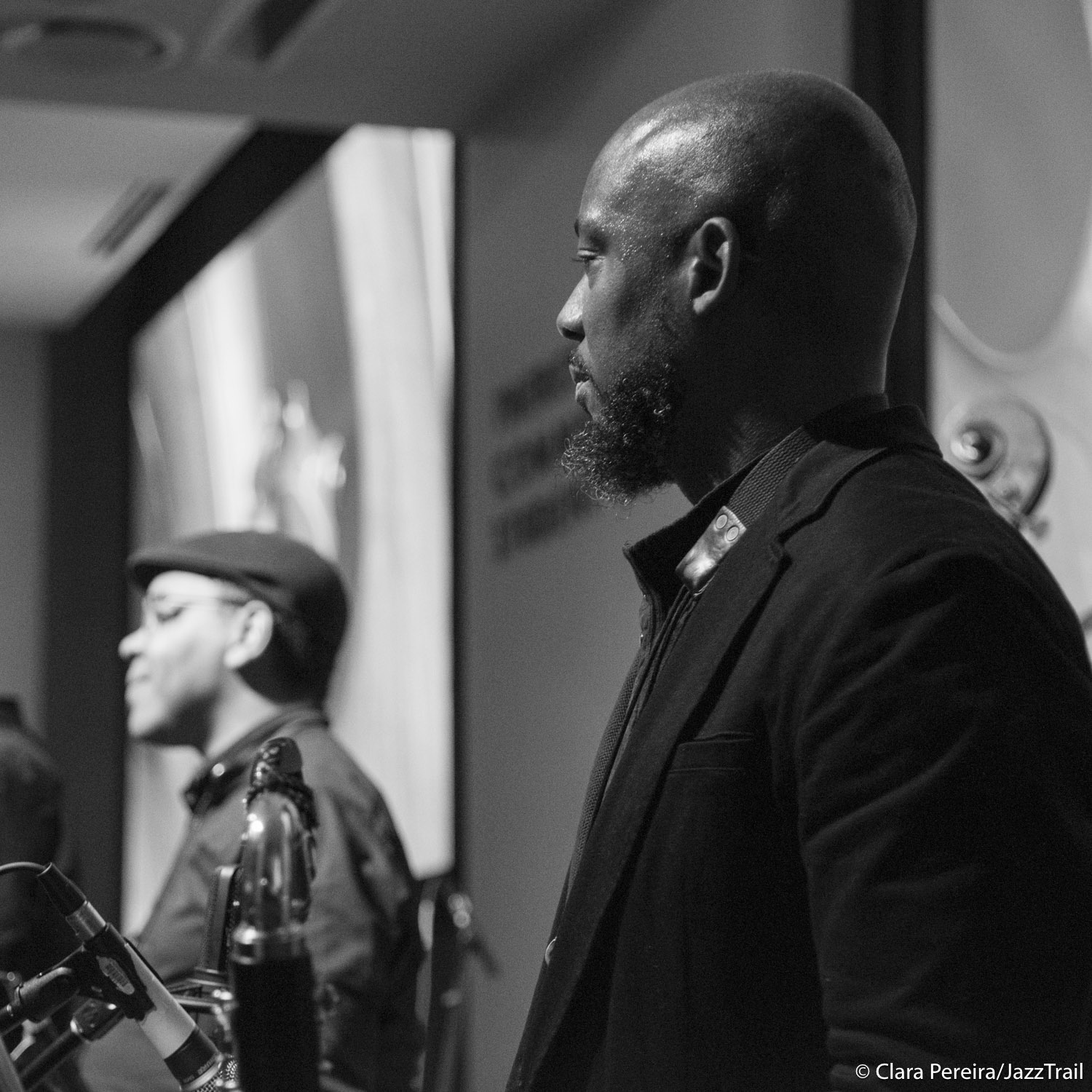
At the New School Jazz Building, the Spanish-American bassist Alexis Cuadrado conducted a cross-generational 10-piece ensemble that flawlessly performed his new musical score for “The Immigrant”, a brutally funny movie dated from 1917 and directed by Charlie Chaplin. In addition to a spectacular horn section with Roman Filiu on alto and soprano saxophone, Marcus Strickland on tenor sax and bass clarinet, Adam O’Farrill on trumpet, and Ryan Keberle on trombone, the conductor had Miles Okazaki on guitar, Nathan Kamal on violin, Emily Sgouros on vibraphone, Mike Sheelar on piano, Aaron Caceres on bass, and Chris Copland on drums.
Musically ambitious and exuberant, this oeuvre comprised several movements, each of them devised with beautiful arrangements and attractive rhythmic flows, and perfectly synchronized with the video projection of the movie in the background. Among seamless shifting tempos and certain passages containing borrowed melodies from jazz classics (Parker’s “Now’s The Time” was one of them), there were a few short yet fetching improvisations.
jamie baum septet+
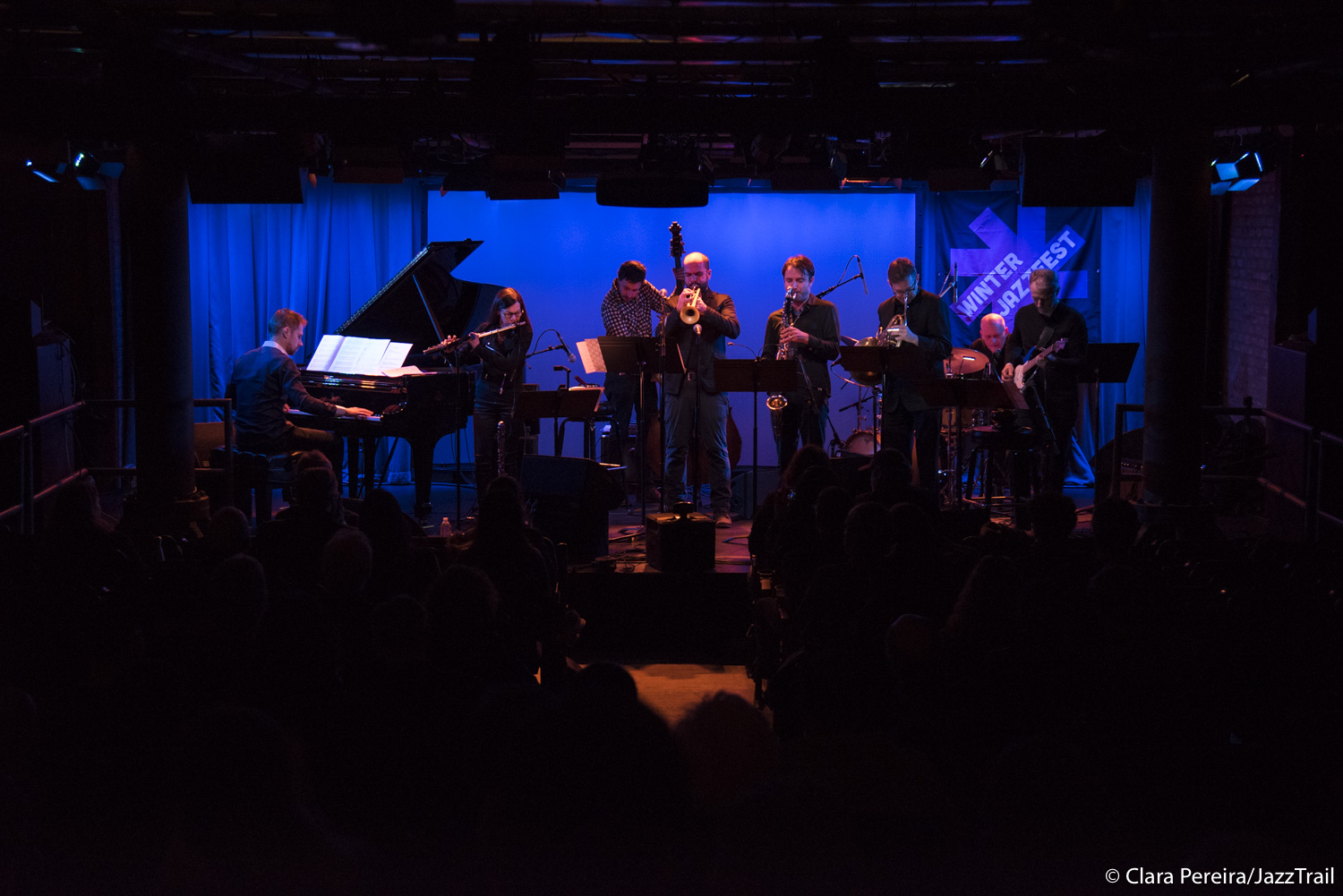
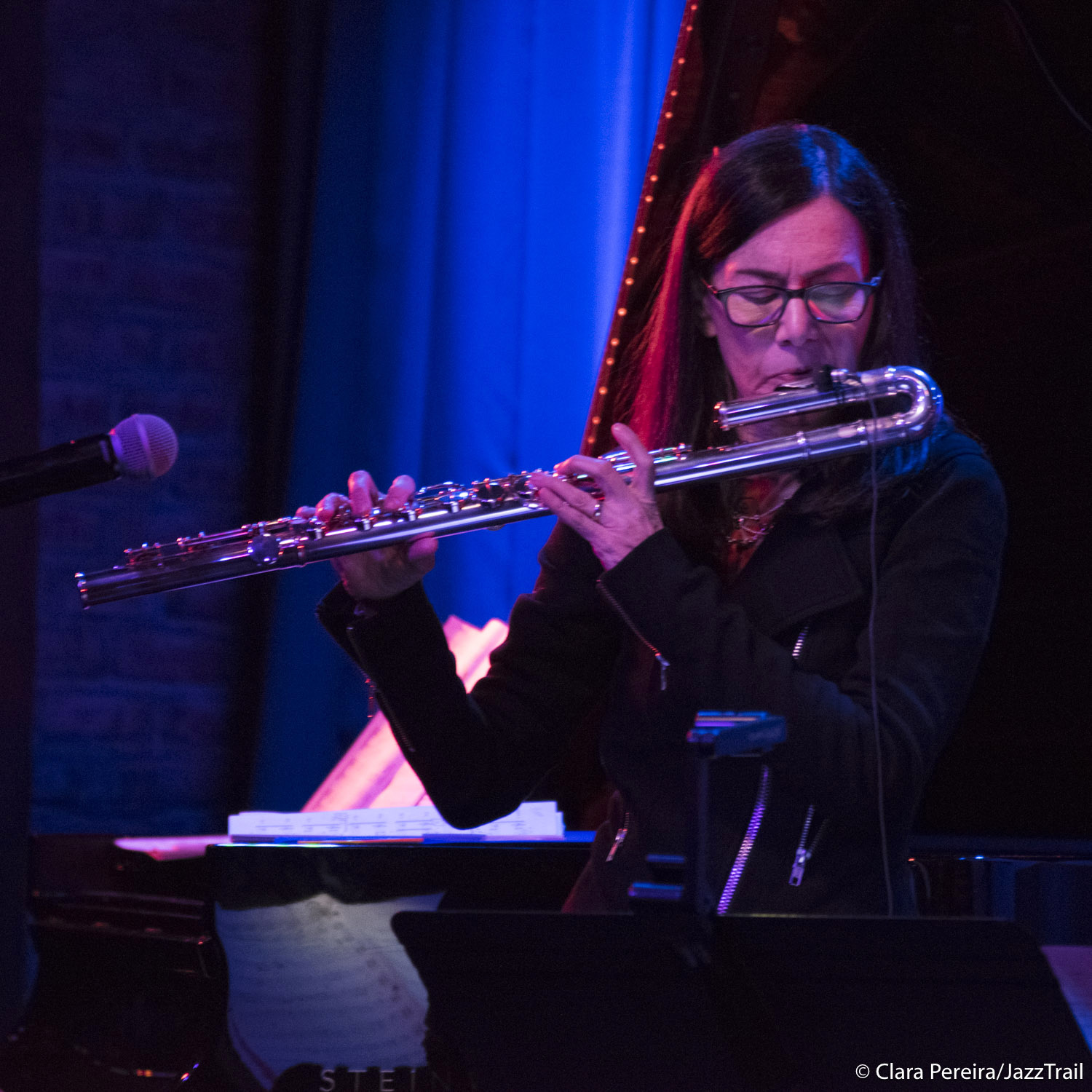
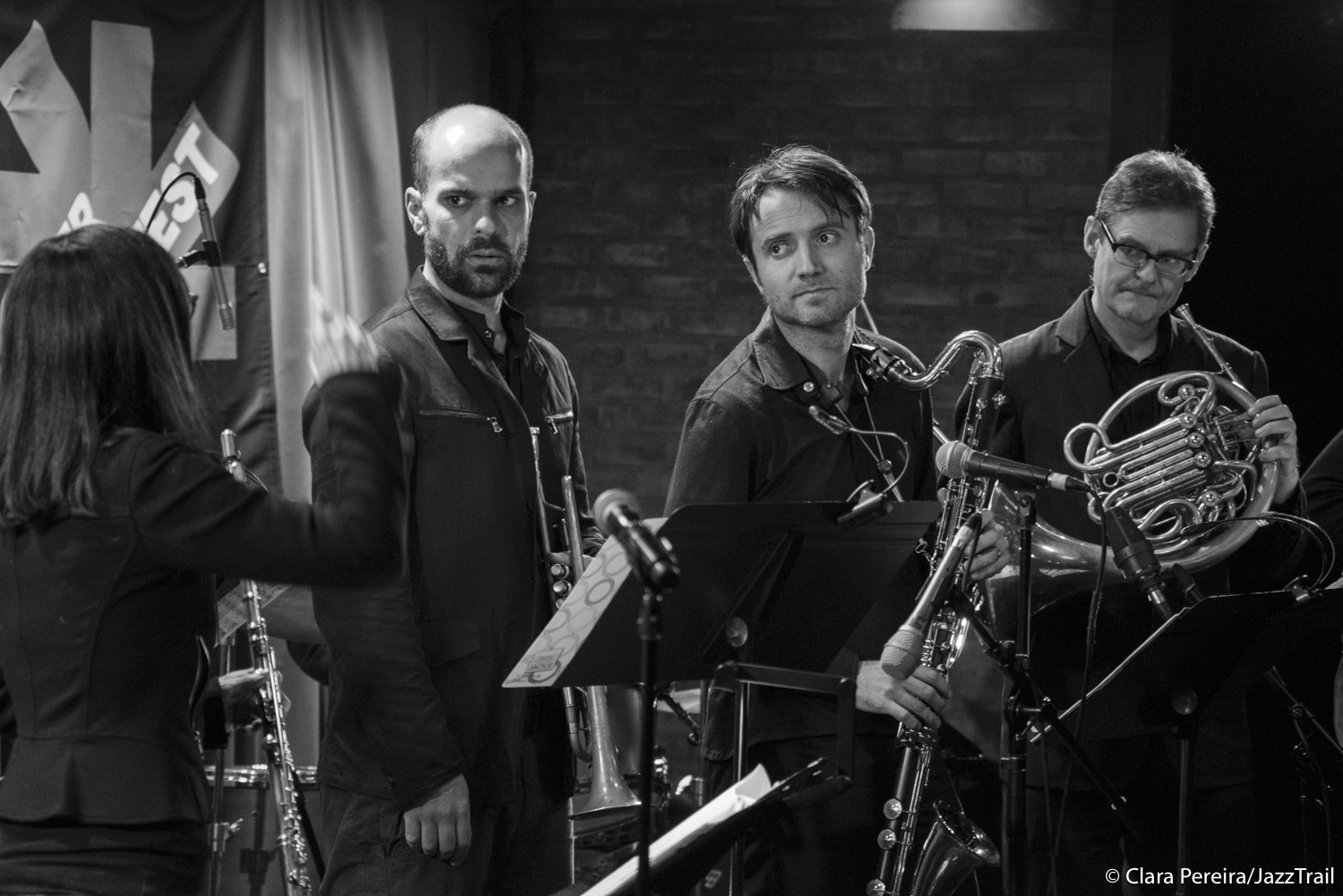
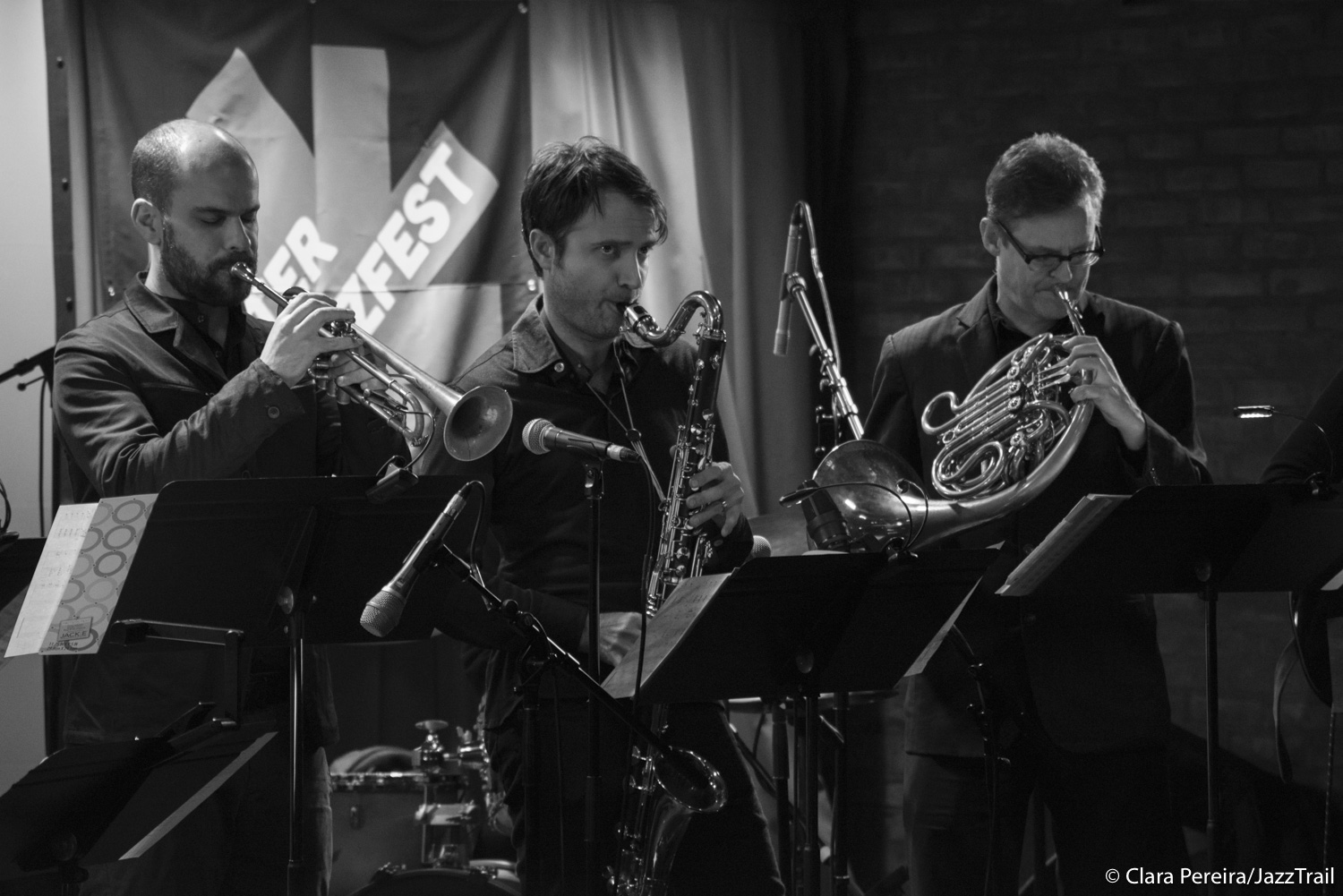
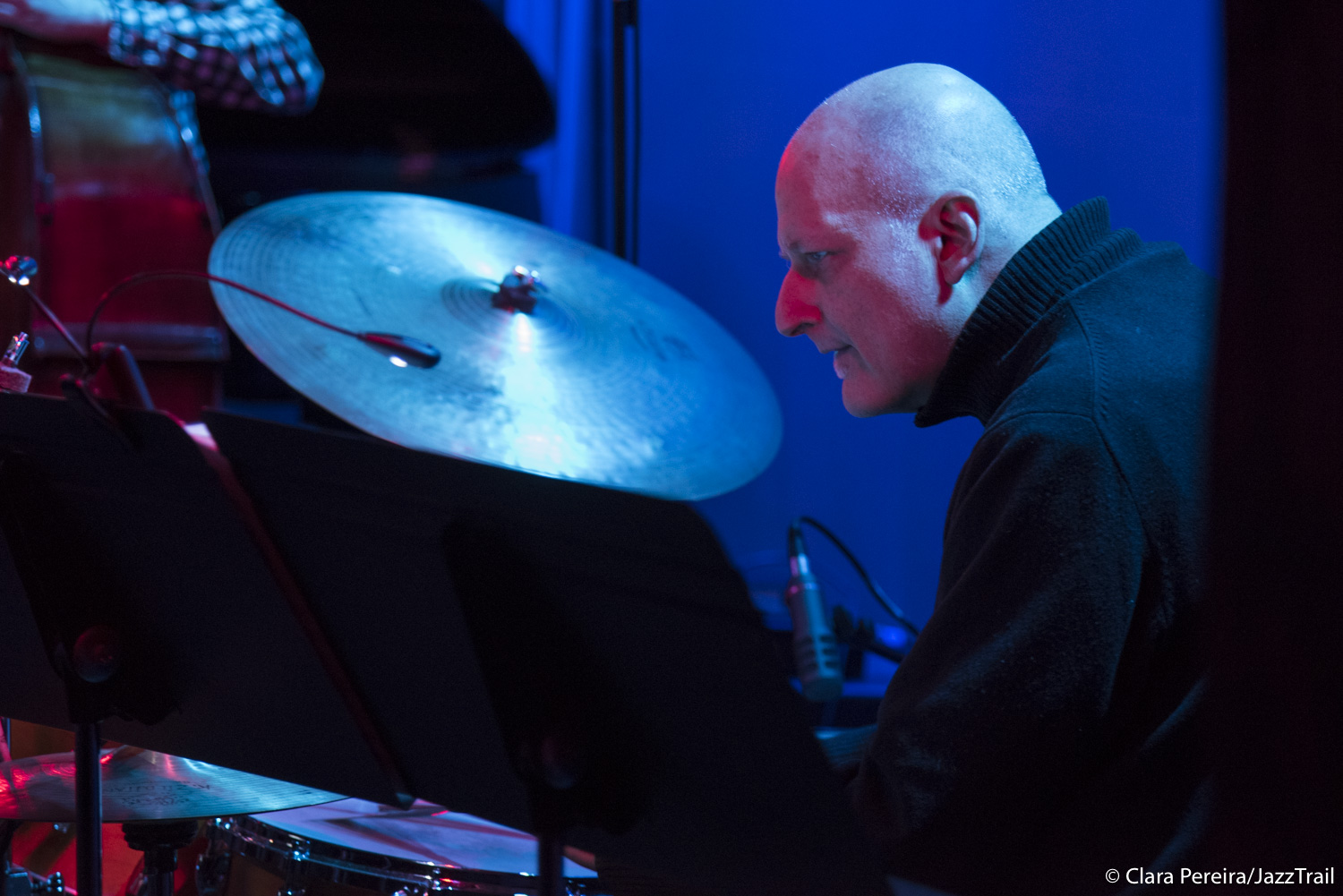
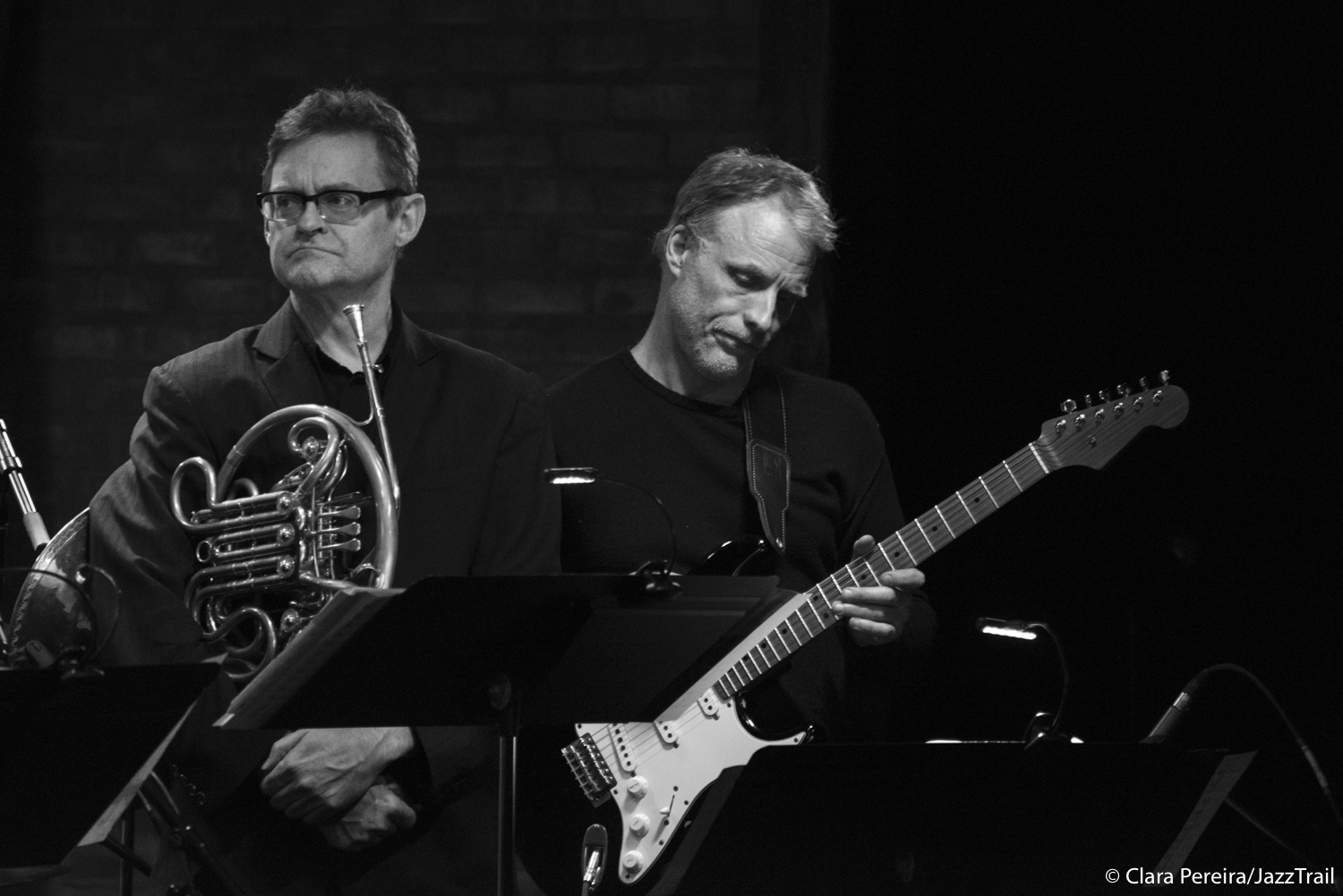
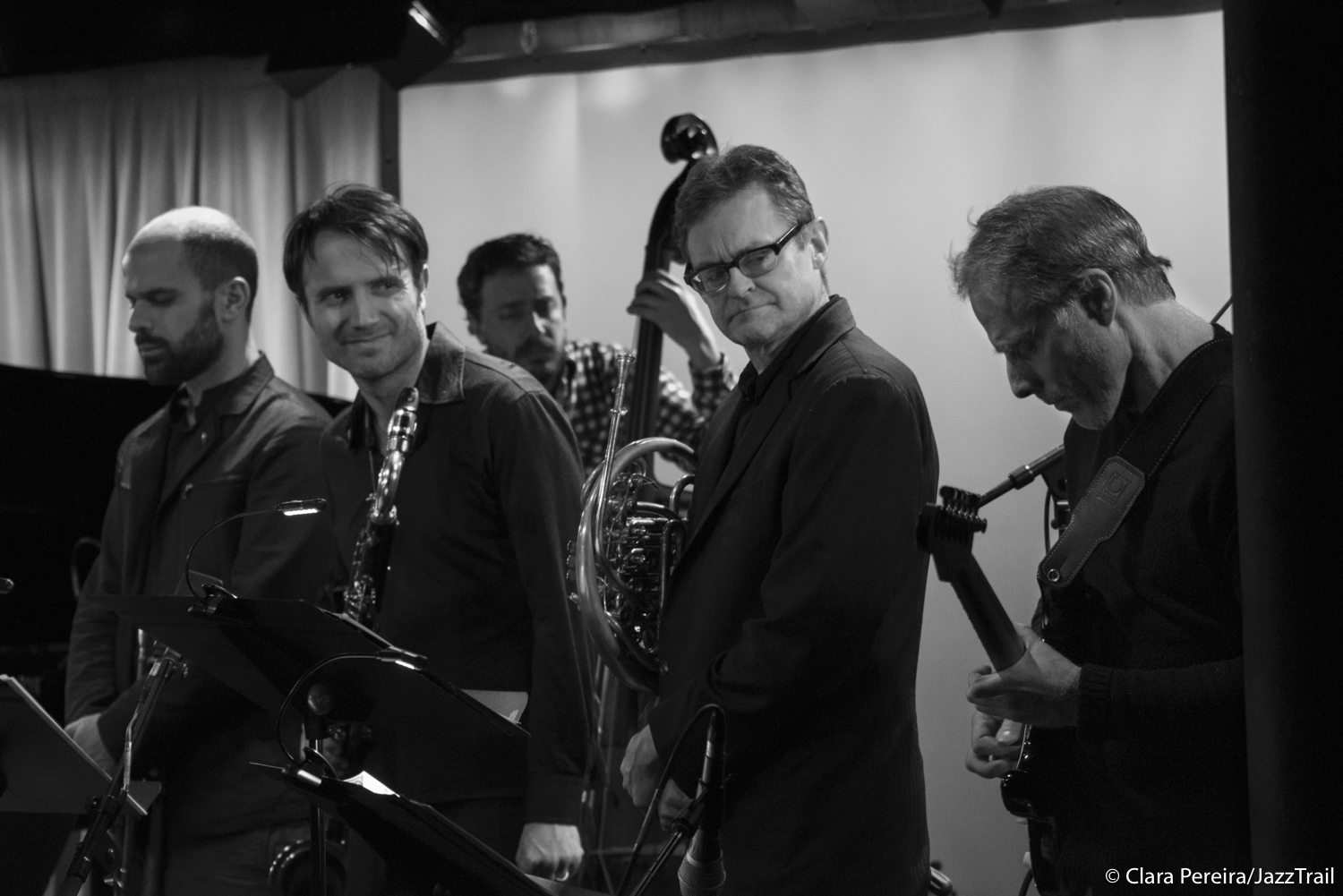
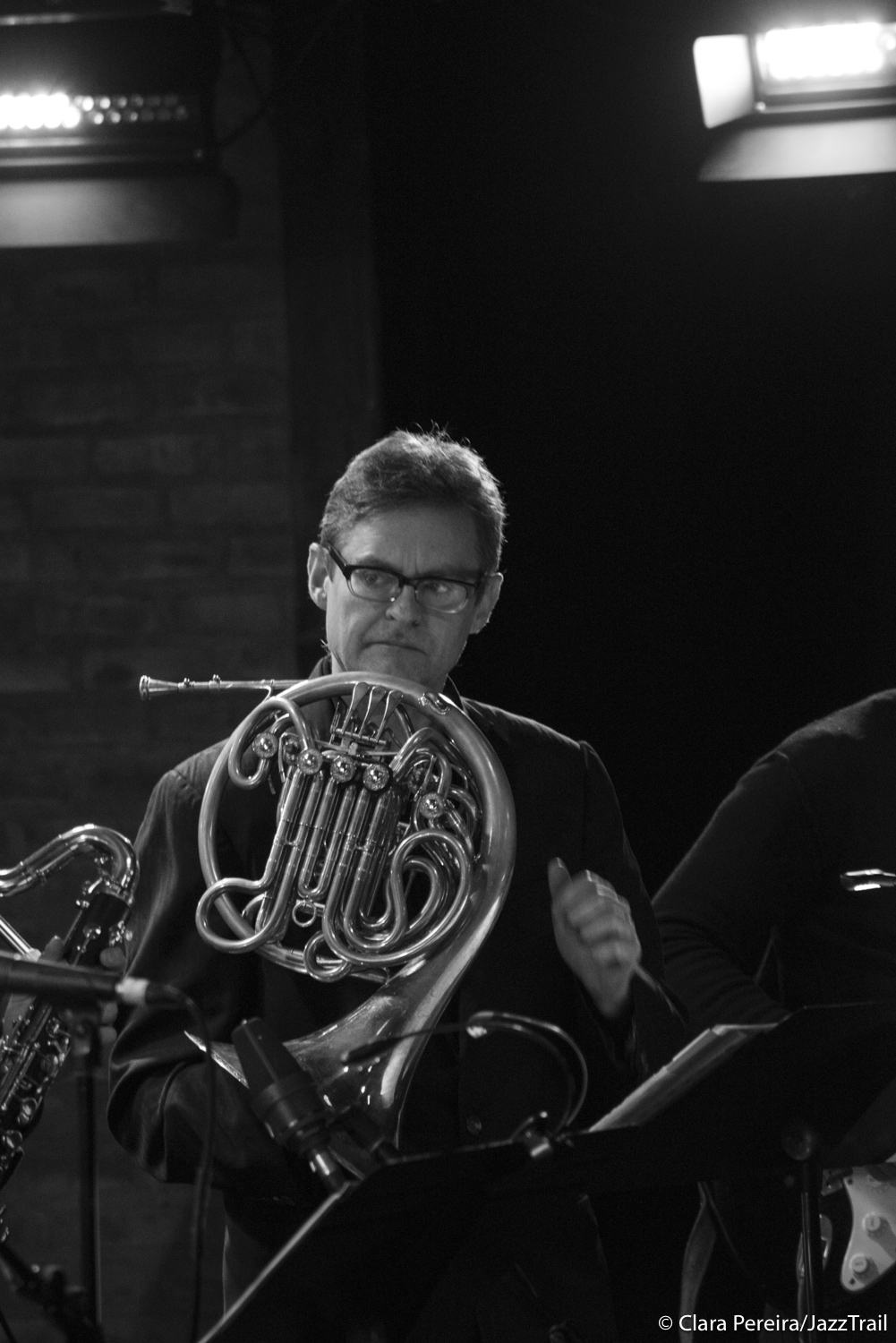
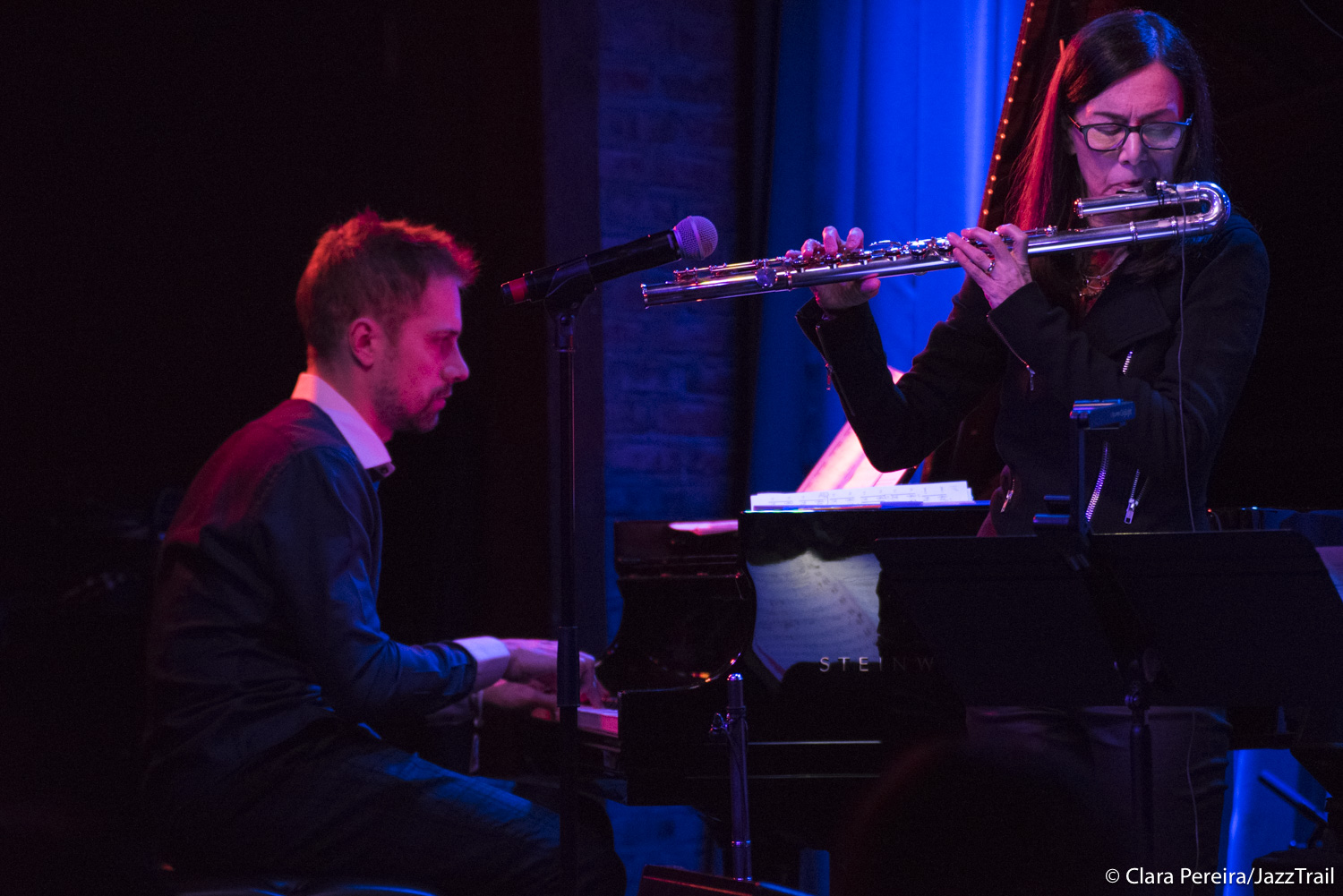
Subculture on Bleecker Street was the perfect stage to accommodate the Septet+ led by flutist/composer Jamie Baum. Currently boasting talents such as trumpeter Amir ElSaffar, saxophonist/clarinetist Sam Sadigursky, French horn player Chris Komer, guitarist Brad Shepik, pianist John Escreet, bassist Zack Lorber, and veteran drummer Jeff Hirshfield, the group beautifully mixed world music influences (Arabian, Jewish, and South Asian) with a charming contemporary jazz. Ms. Baum focused on some of the new pieces from the Septet’s fourth CD, Bridges, to be released soon on the Sunnyside label, including a stunning three-movement Suite for Nepal, where we can indulge in atonal guitar strokes, alternated solos from flute and saxophone over a 5/4 samba-like rhythm, and a ternary finale. Also noteworthy were the arrangements of Nusrat Fateh Ali Khan’s “Lament”, spotlighting Shepik’s infectiously distorted guitar over a hip-hop-ish dragging rhythm, and the original “Song Without Words”, an Eastern balm splendidly crooned by ElSaffar.
GARD NILSSEN'S ACOUSTIC UNITY
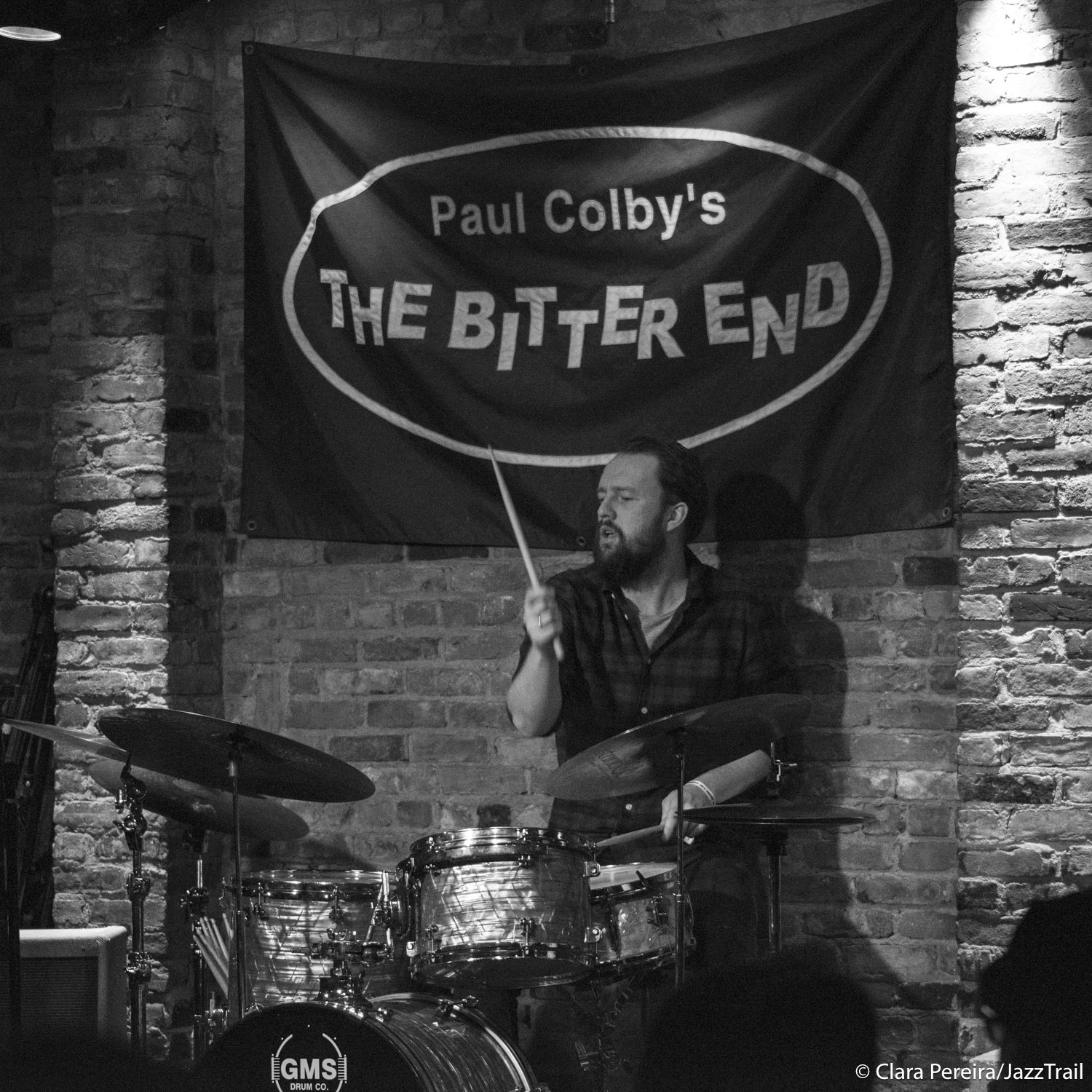
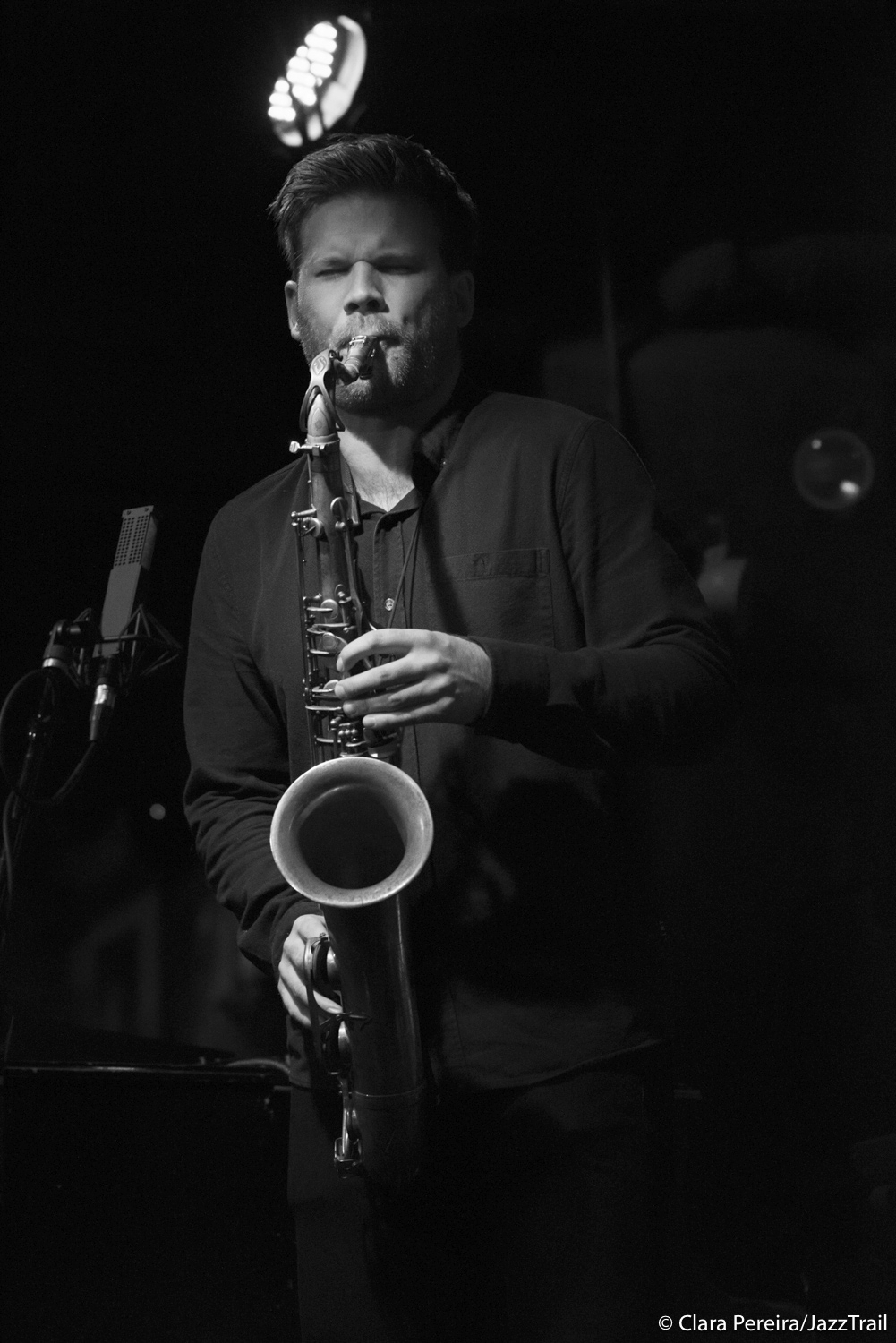
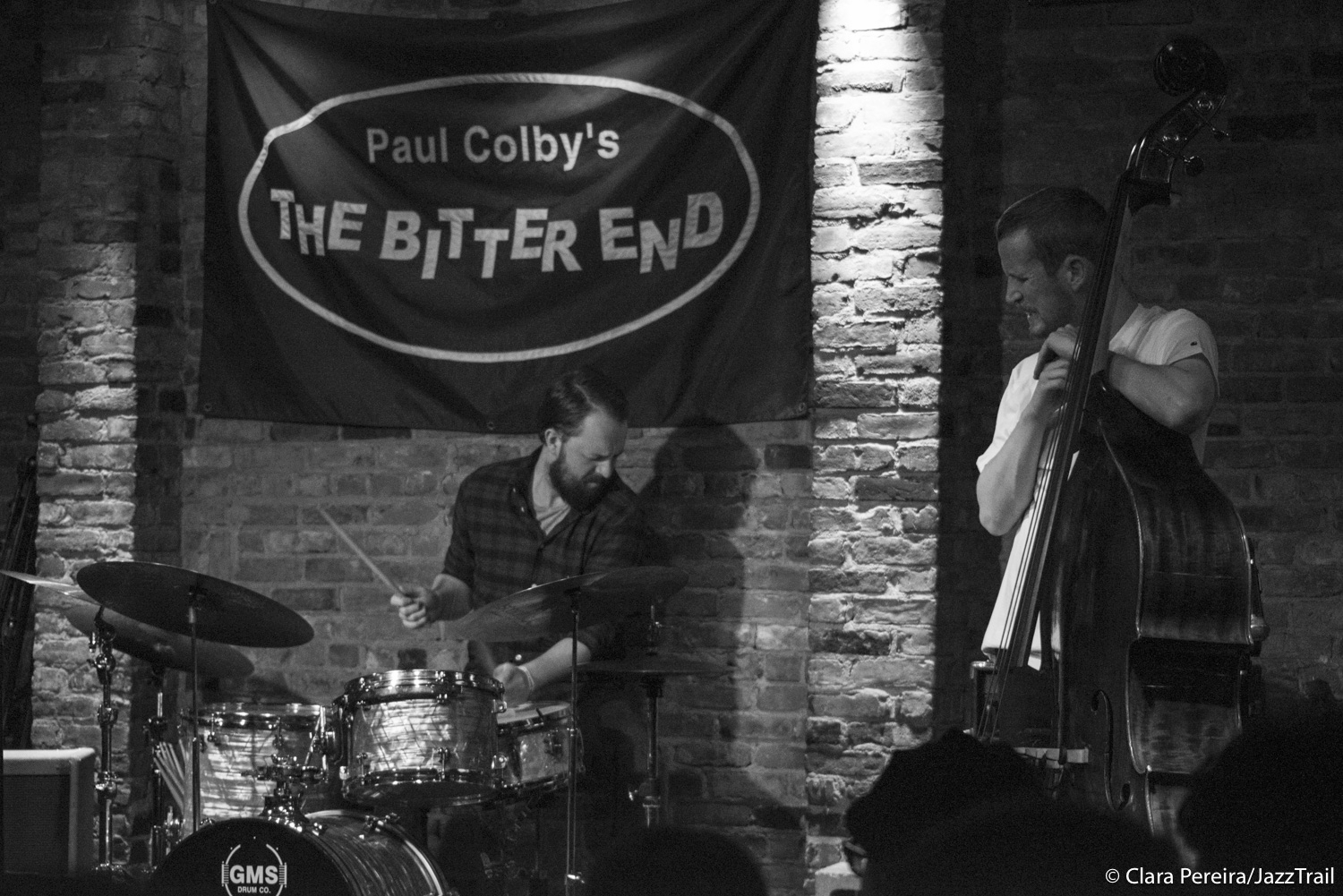
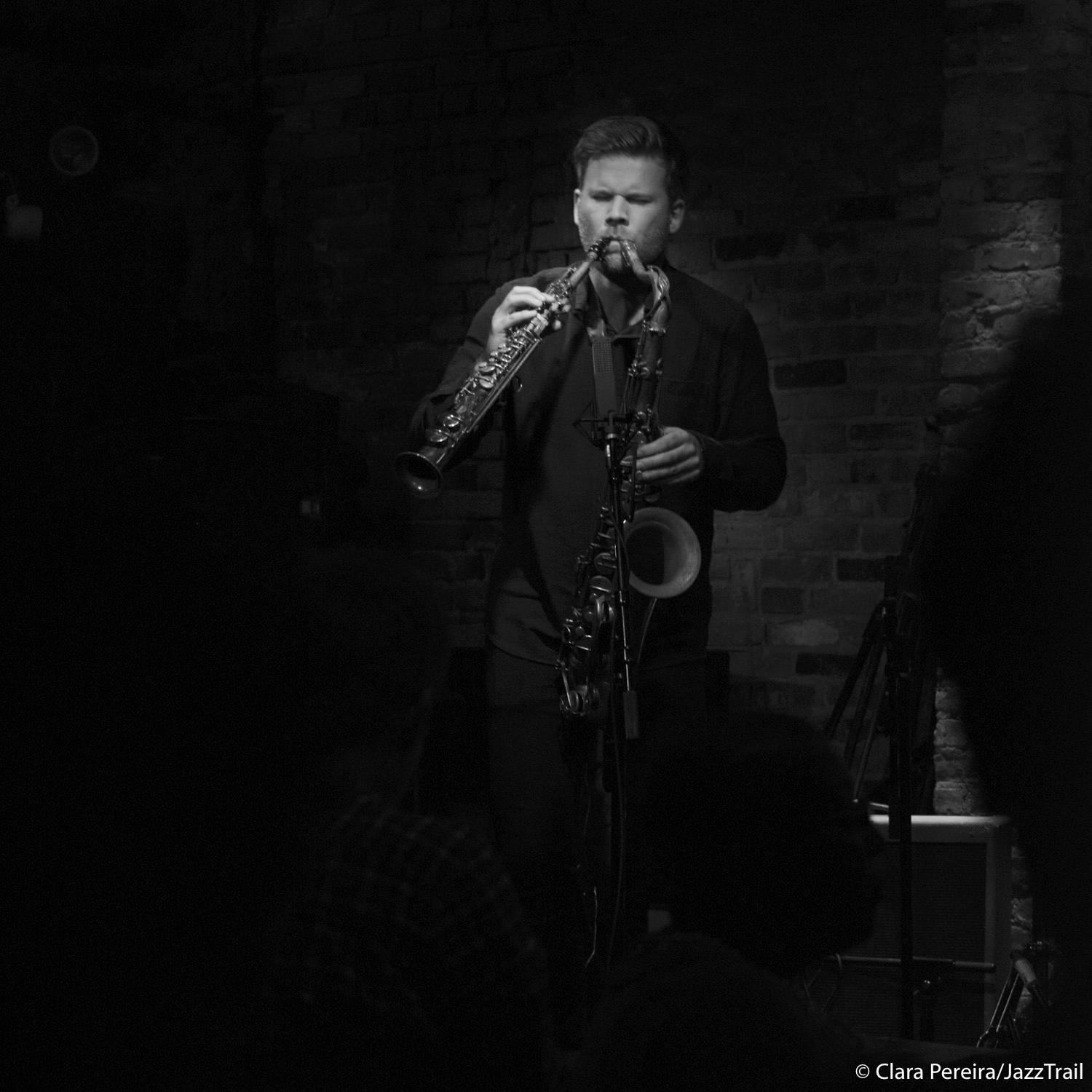
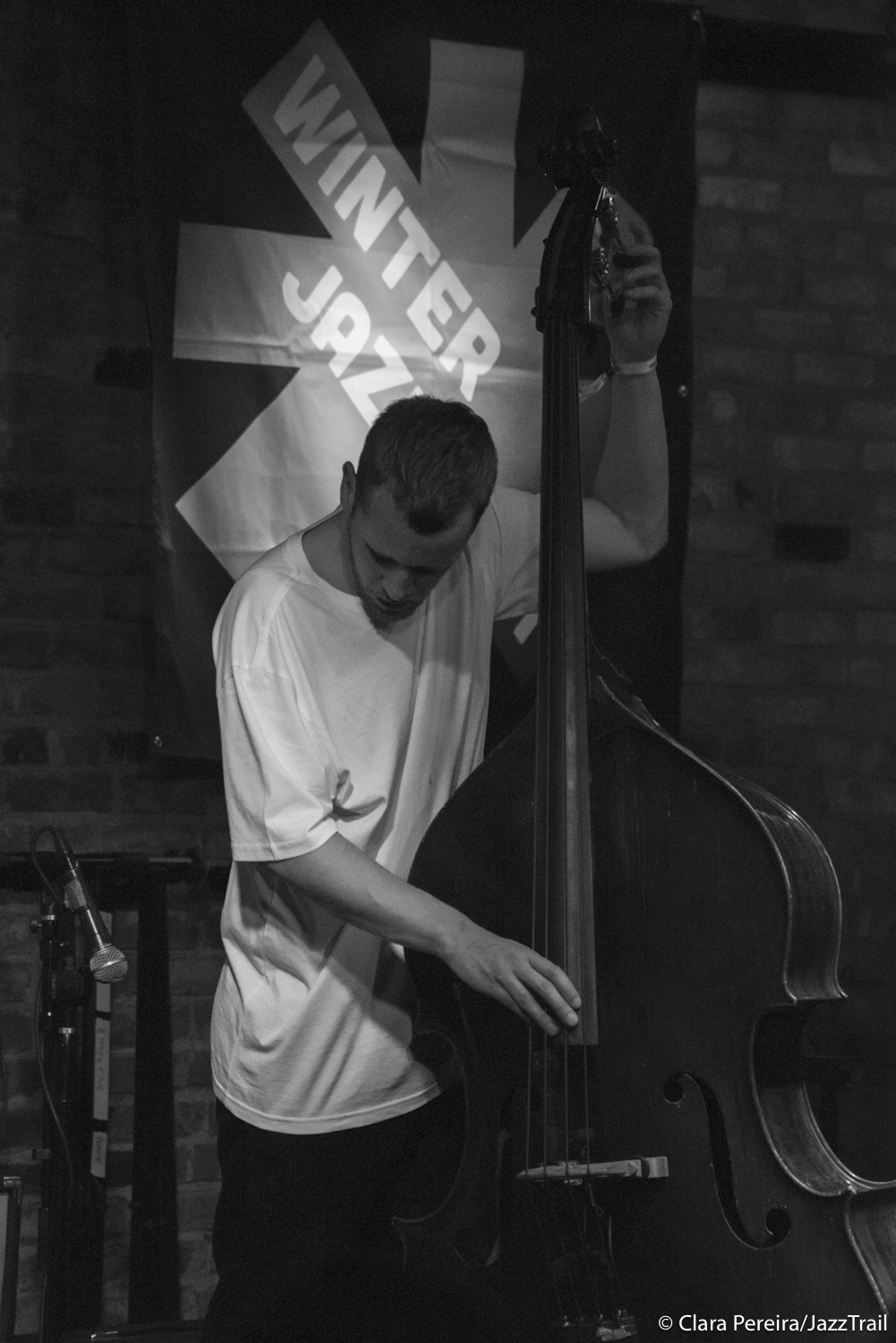
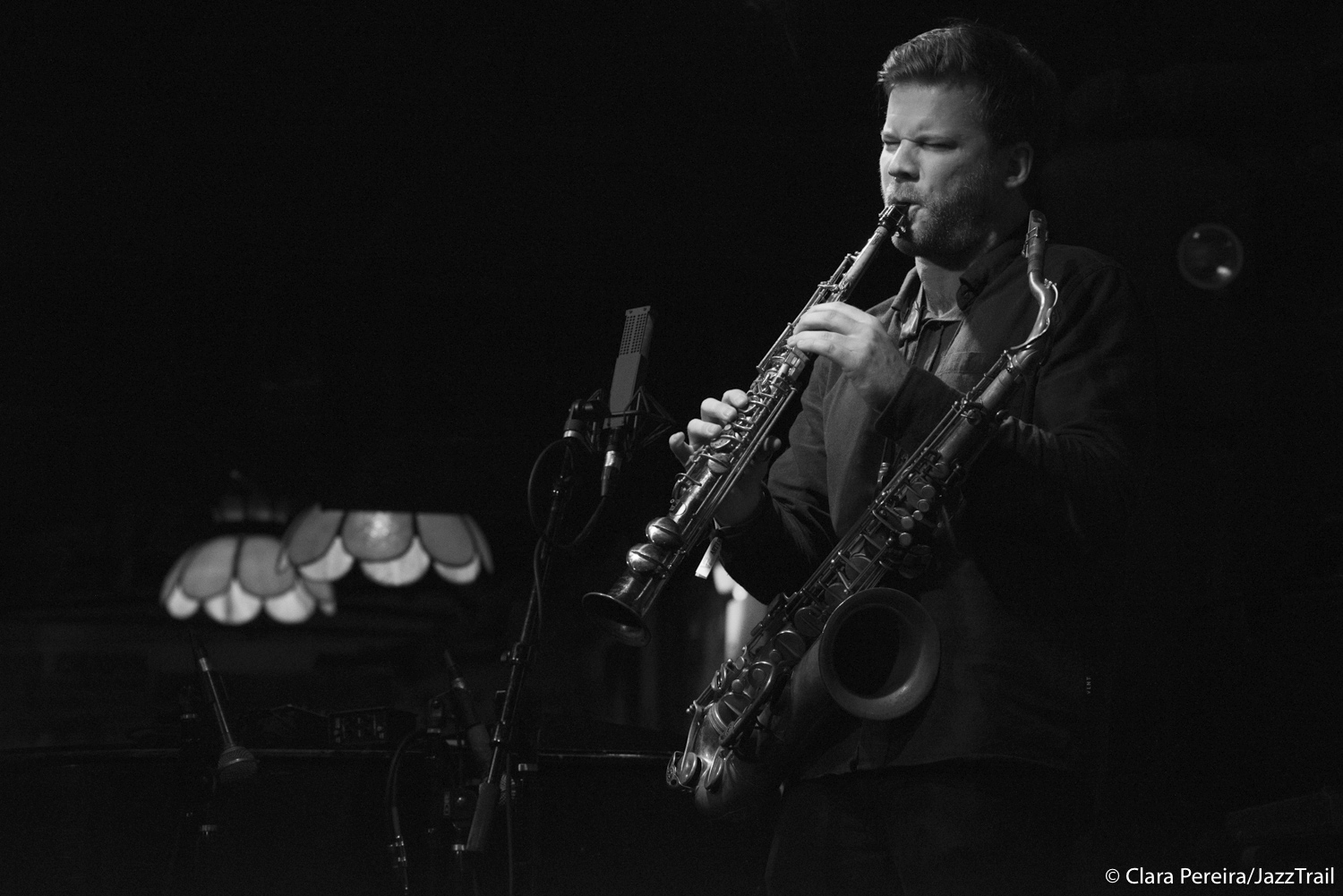
The Norwegian drummer Gard Nilssen brought his Acoustic Unity trio to the packed The Bitter End, spreading energy all around and provoking the audience with their avant-garde soundscapes filled with electrifying solos, stimulating dynamics, and diversified strapping grooves. The final piece, “Jack”, was absolutely memorable with Nilssen teaming up tightly with bassist Petter Eldh in a fantastic rock-inflected groove that served the discourse of André Roligheten, operating simultaneously on tenor and soprano saxophones for extra punch.
SARA SERPA'S RECOGNITION
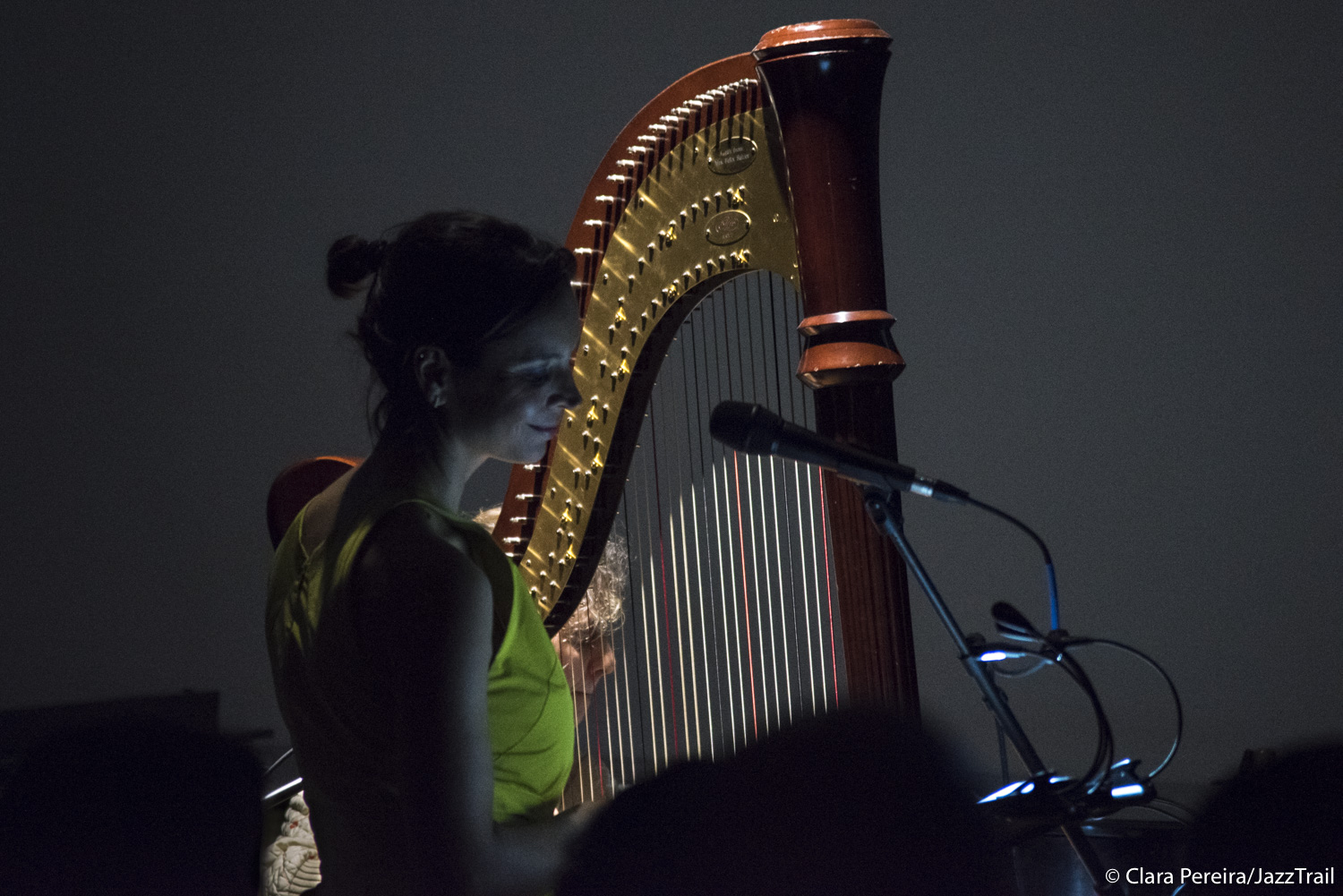
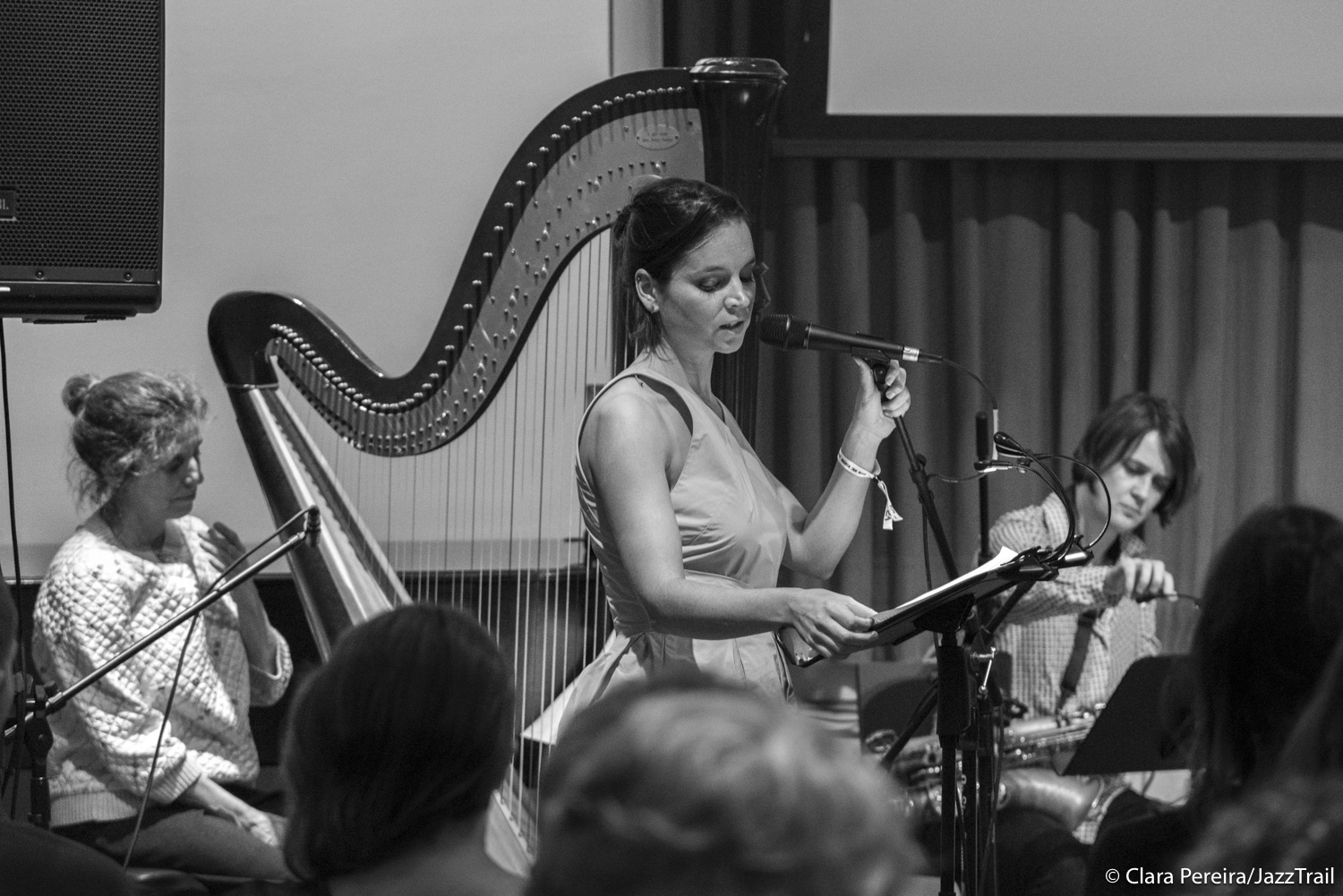
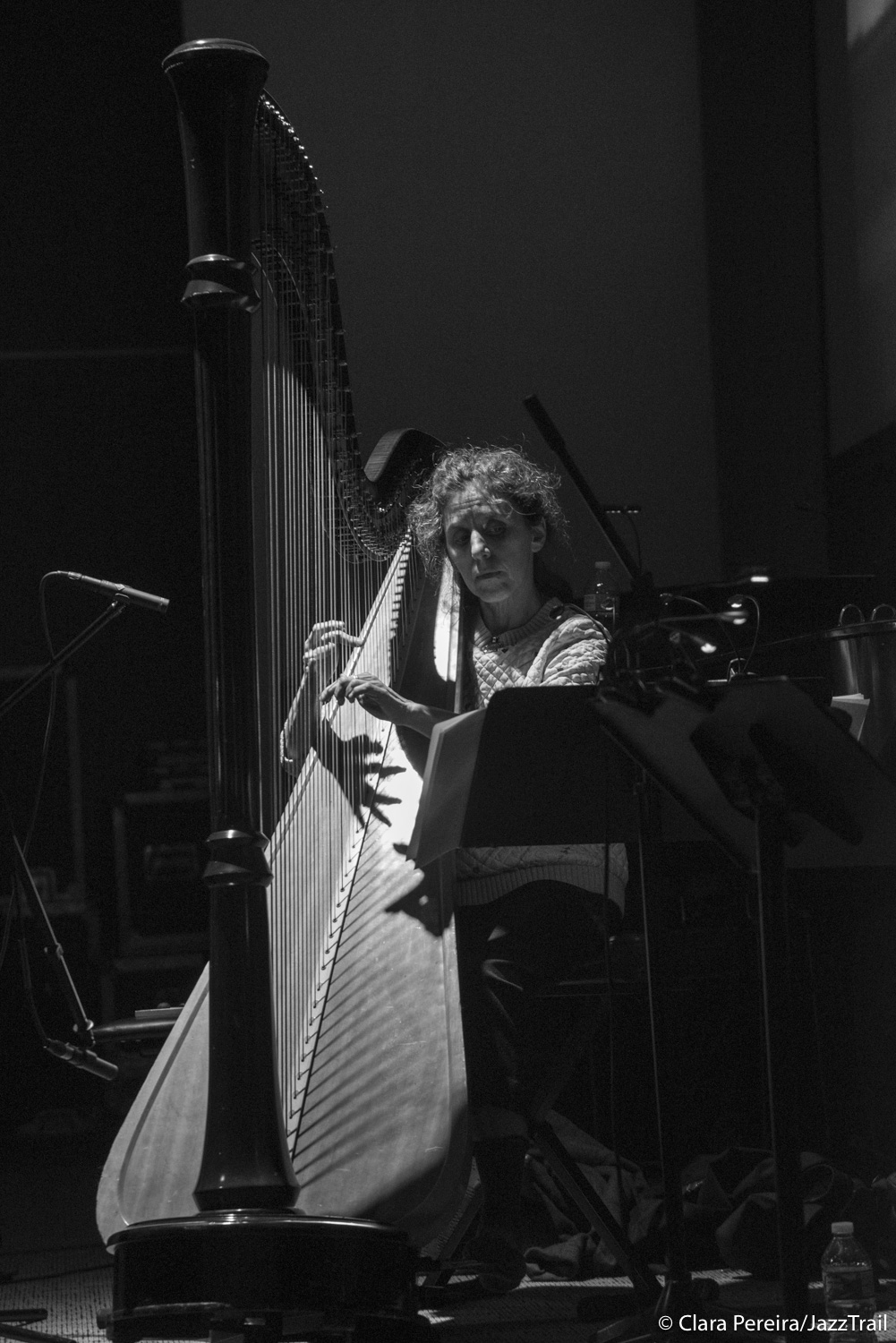
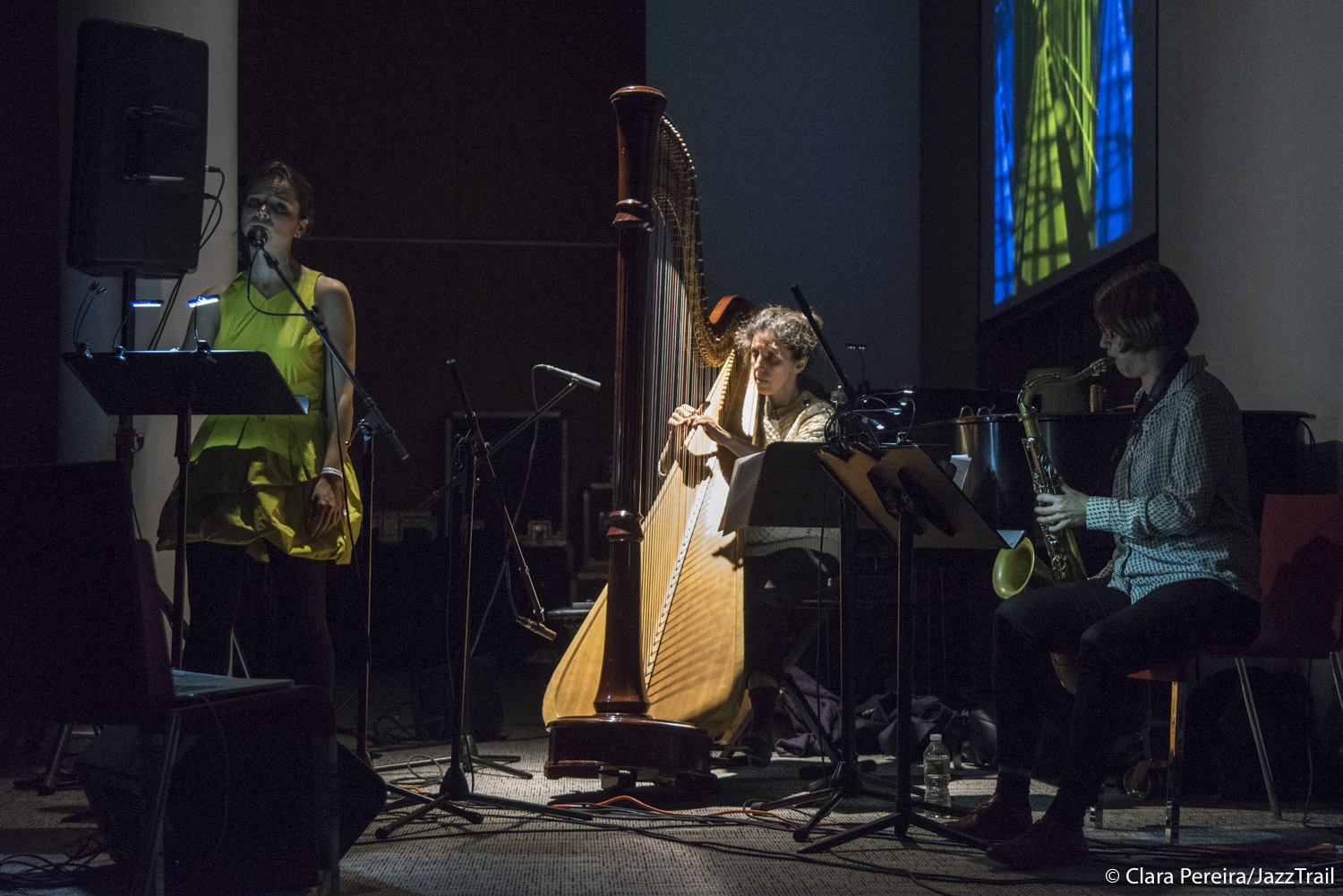
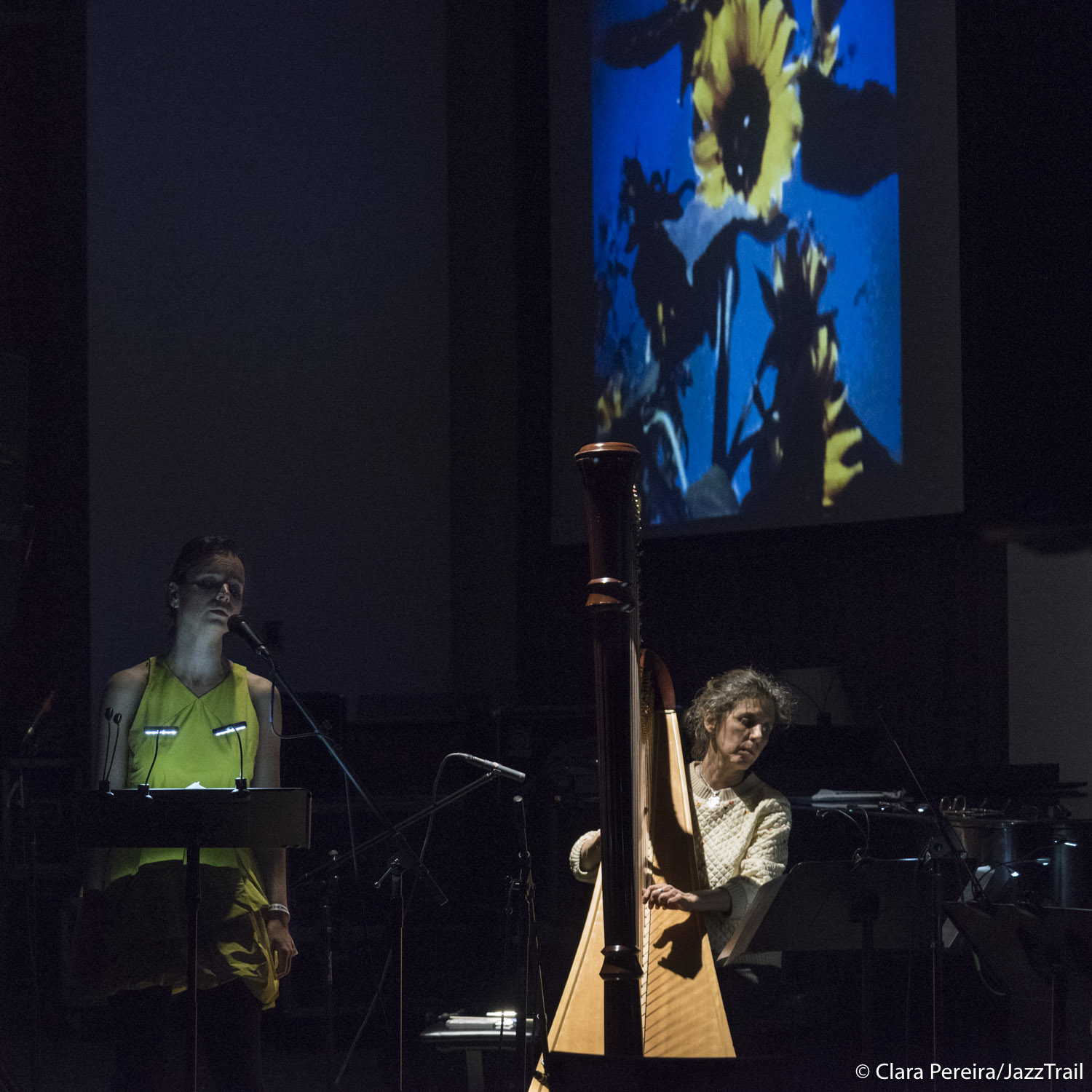
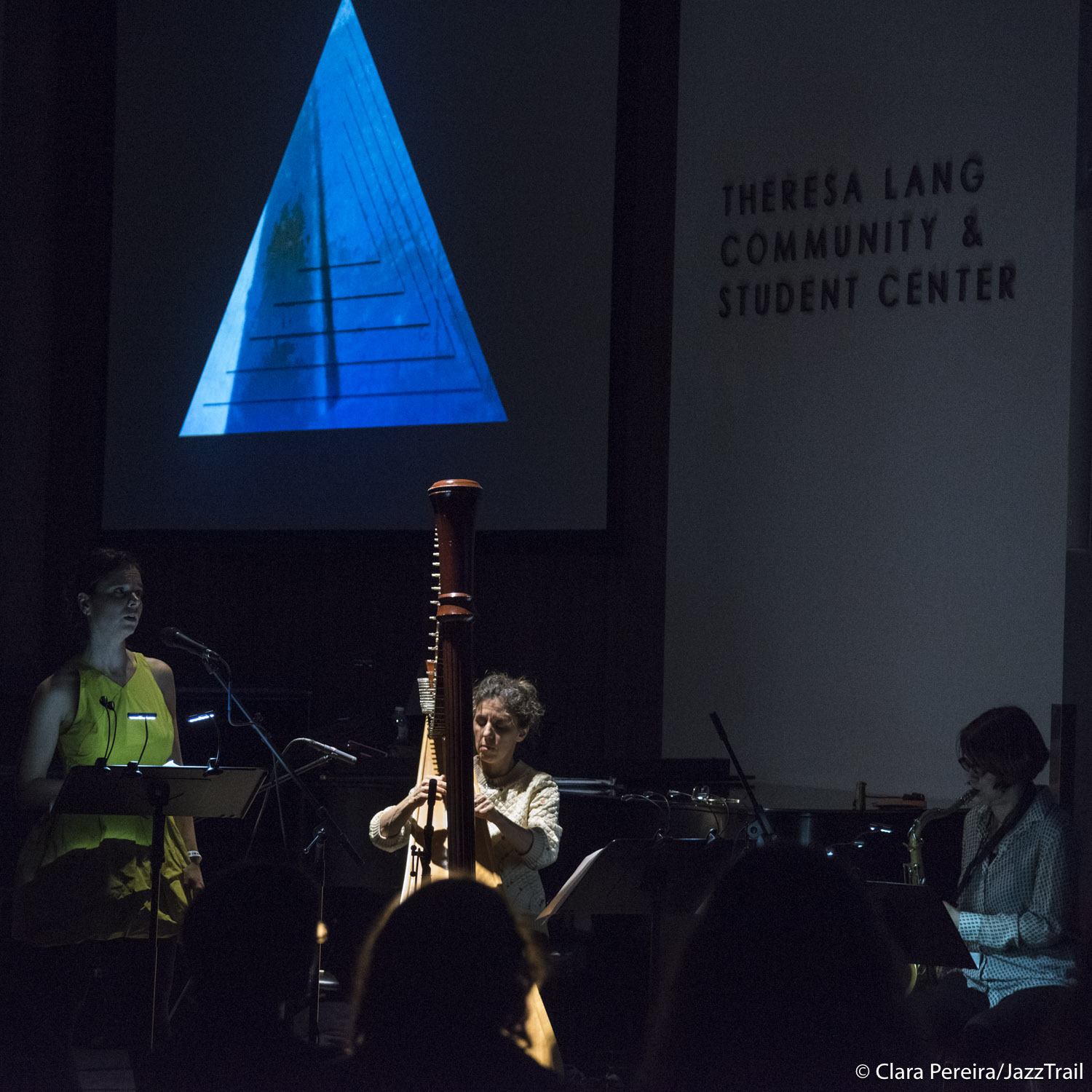
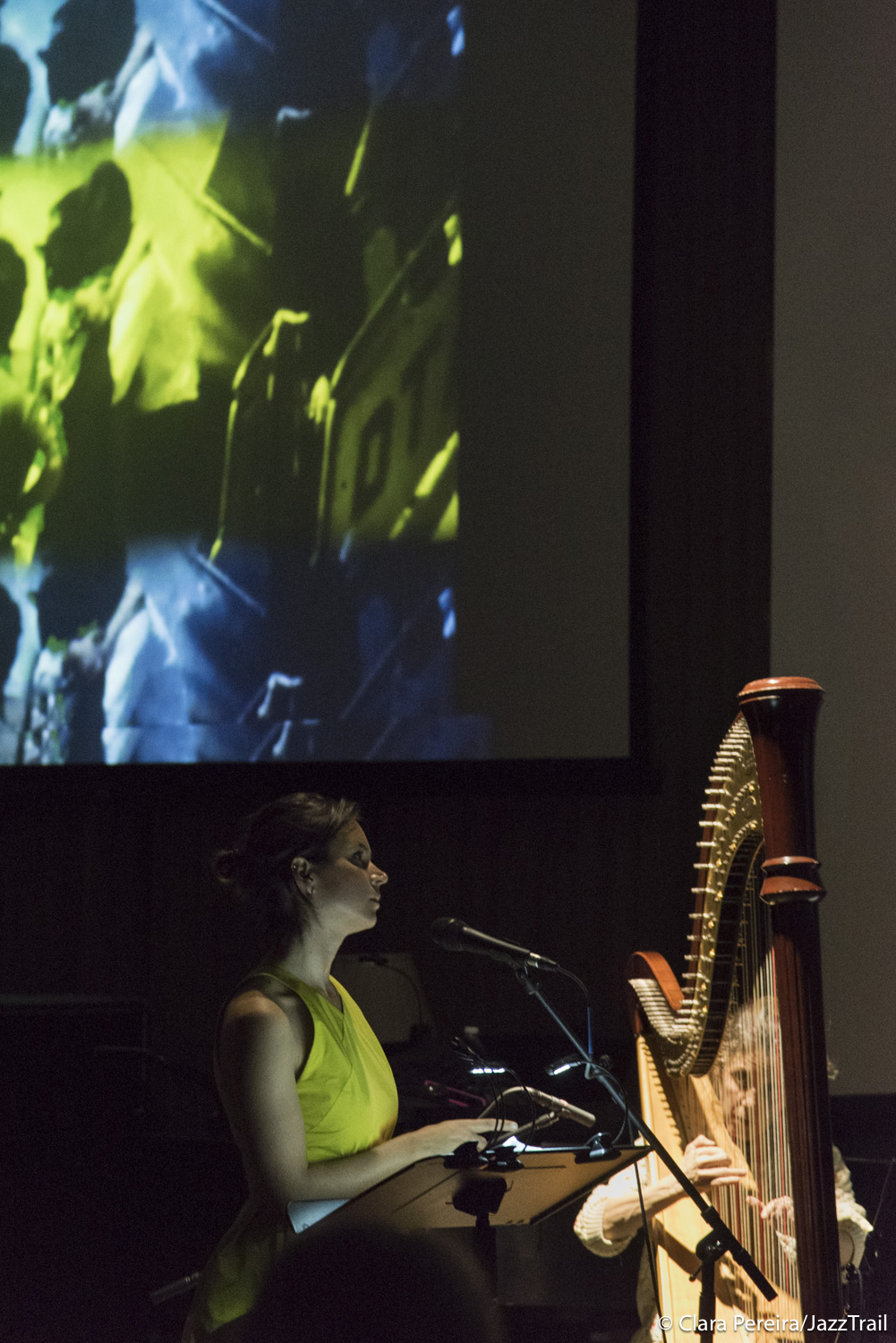
With the absence of saxophonist Mark Turner, Sara Serpa’s Recognition became a trio of women, which besides the Portuguese singer/composer, featured Ingrid Laubrock on saxophone and Zeena Parkins on harp. Combining music and film, the conceptual project relies on written and improvised material that go together with footage from the 60s, captured by Serpa’s grandfather in Angola, a country that was under Portuguese colonial law at that time. The displaying of the footage, intercalated with texts by the revolutionary Amilcar Cabral, earned an extra-sensorial meaning with the emplacement of chants that ranged from sparkling to sufferable to propulsive, often creating moments of pure lyricism by themselves or falling in concurrent ostinatos with the other instruments.
MARC RIBOT'S SONGS OF RESISTANCE
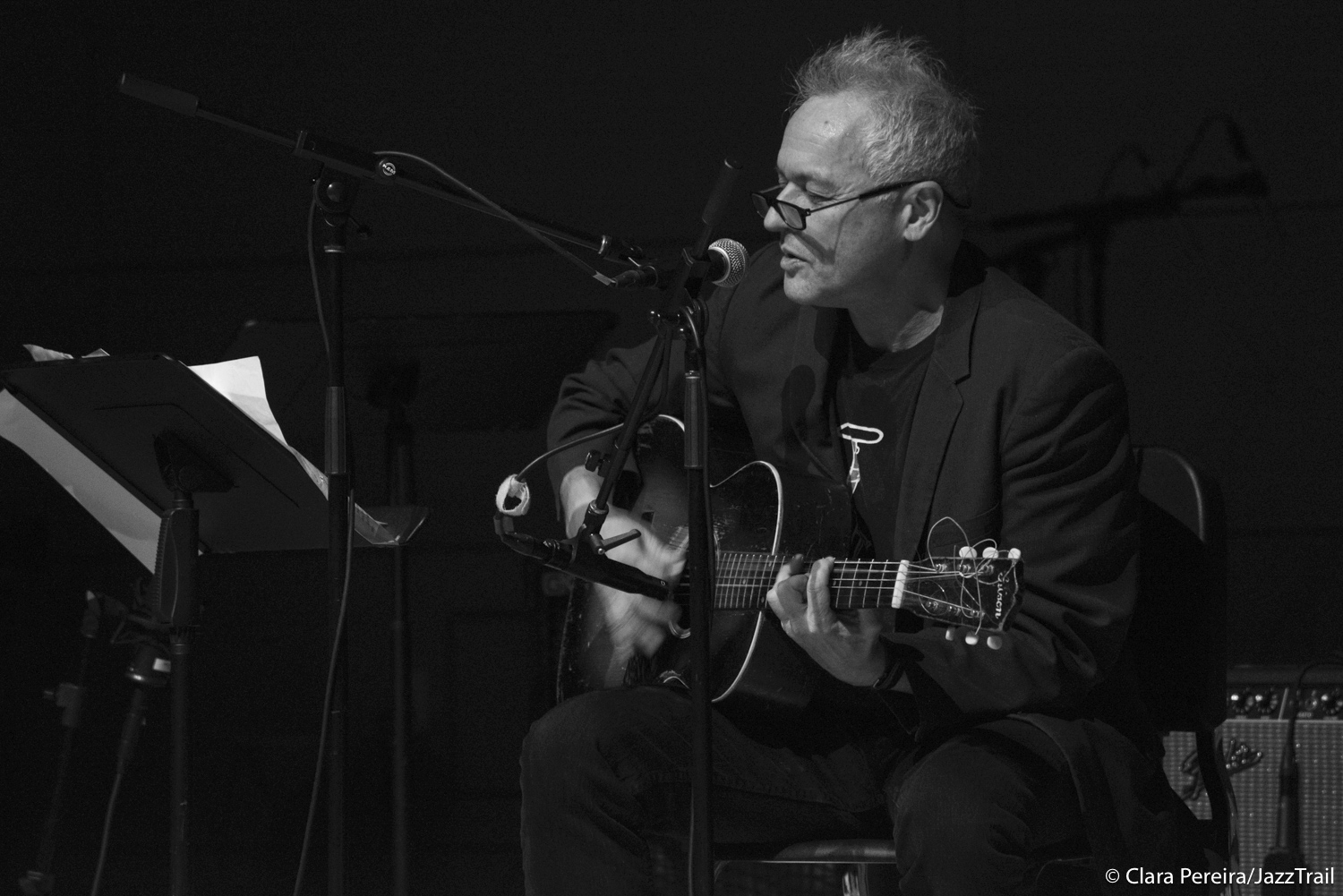
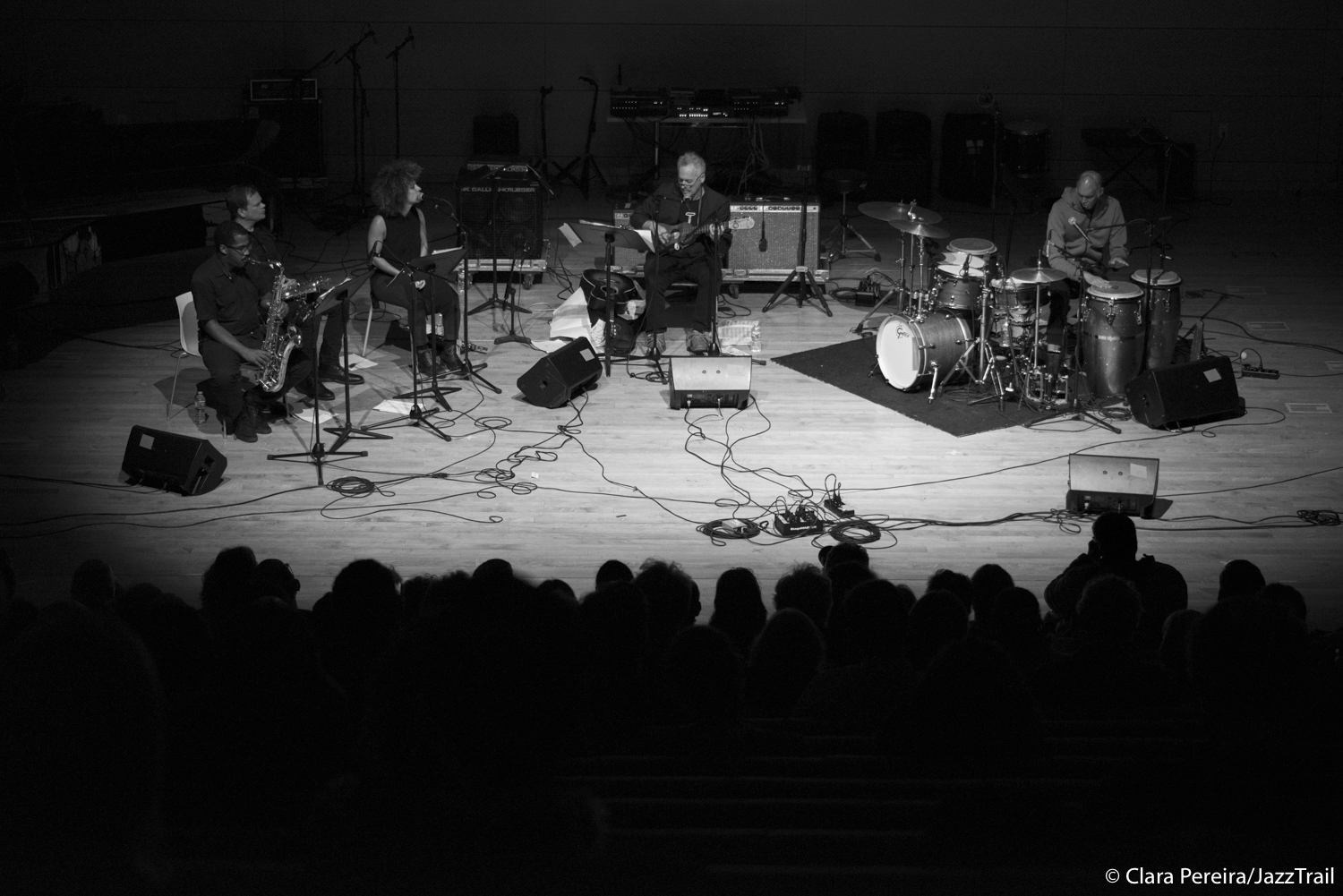
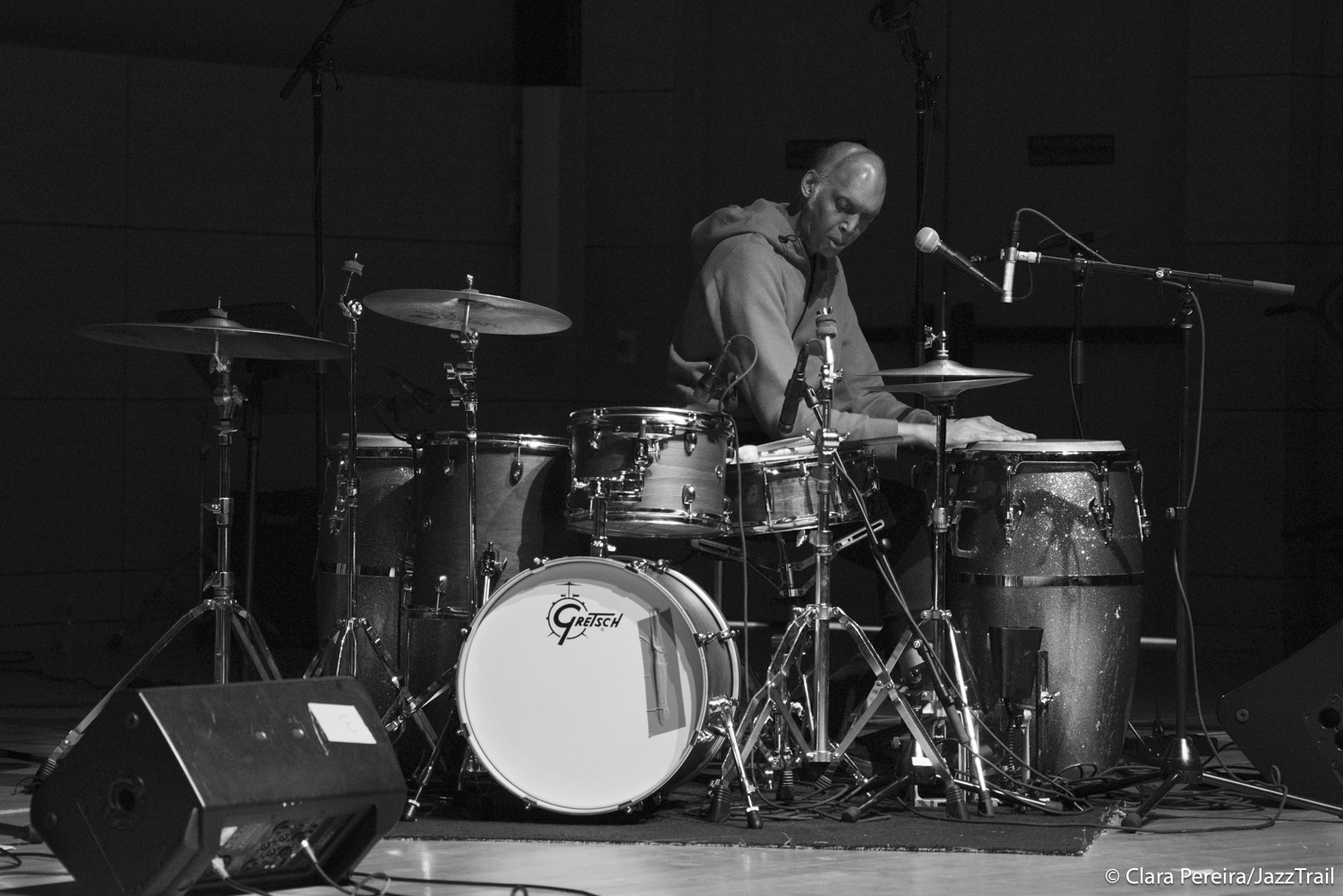
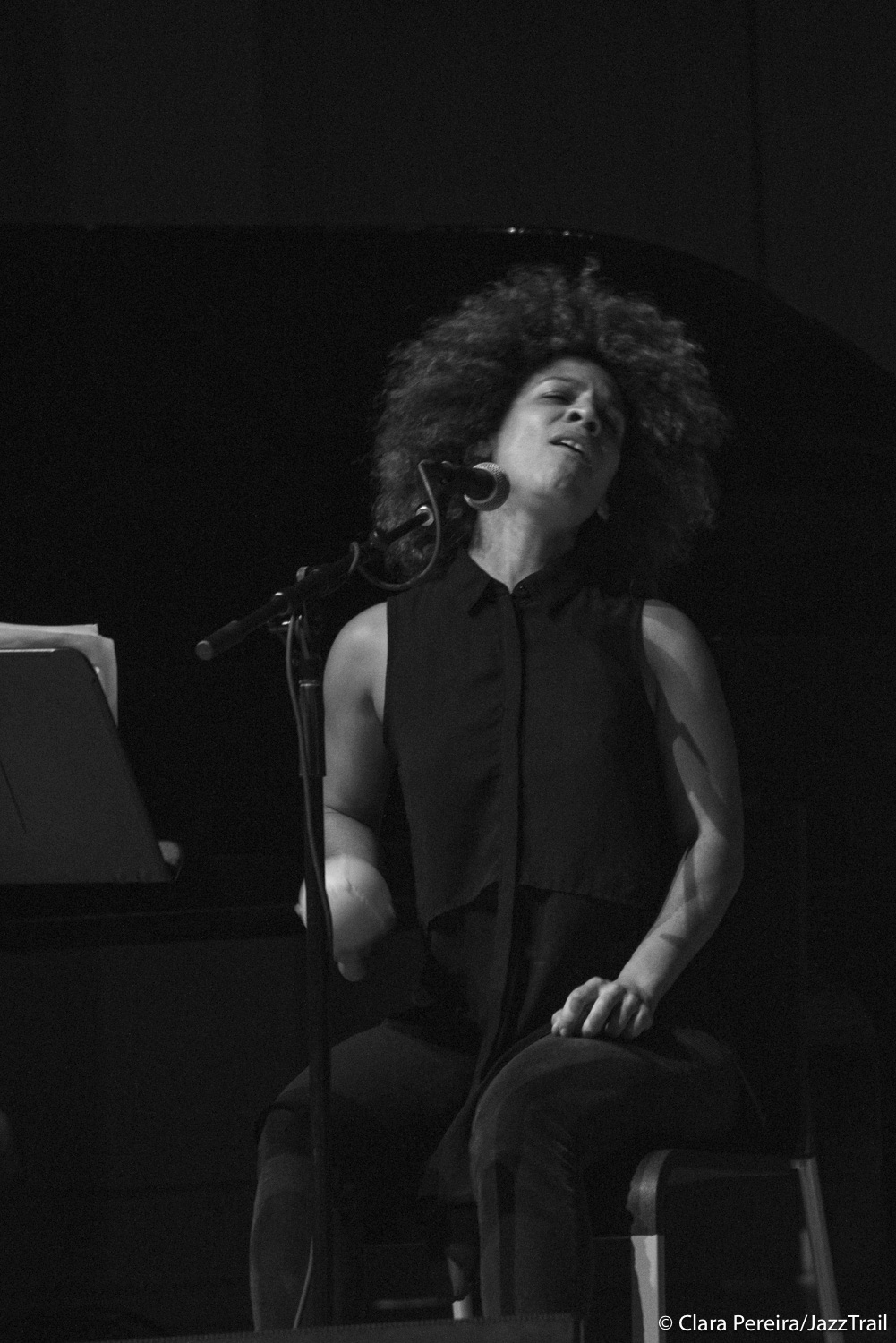
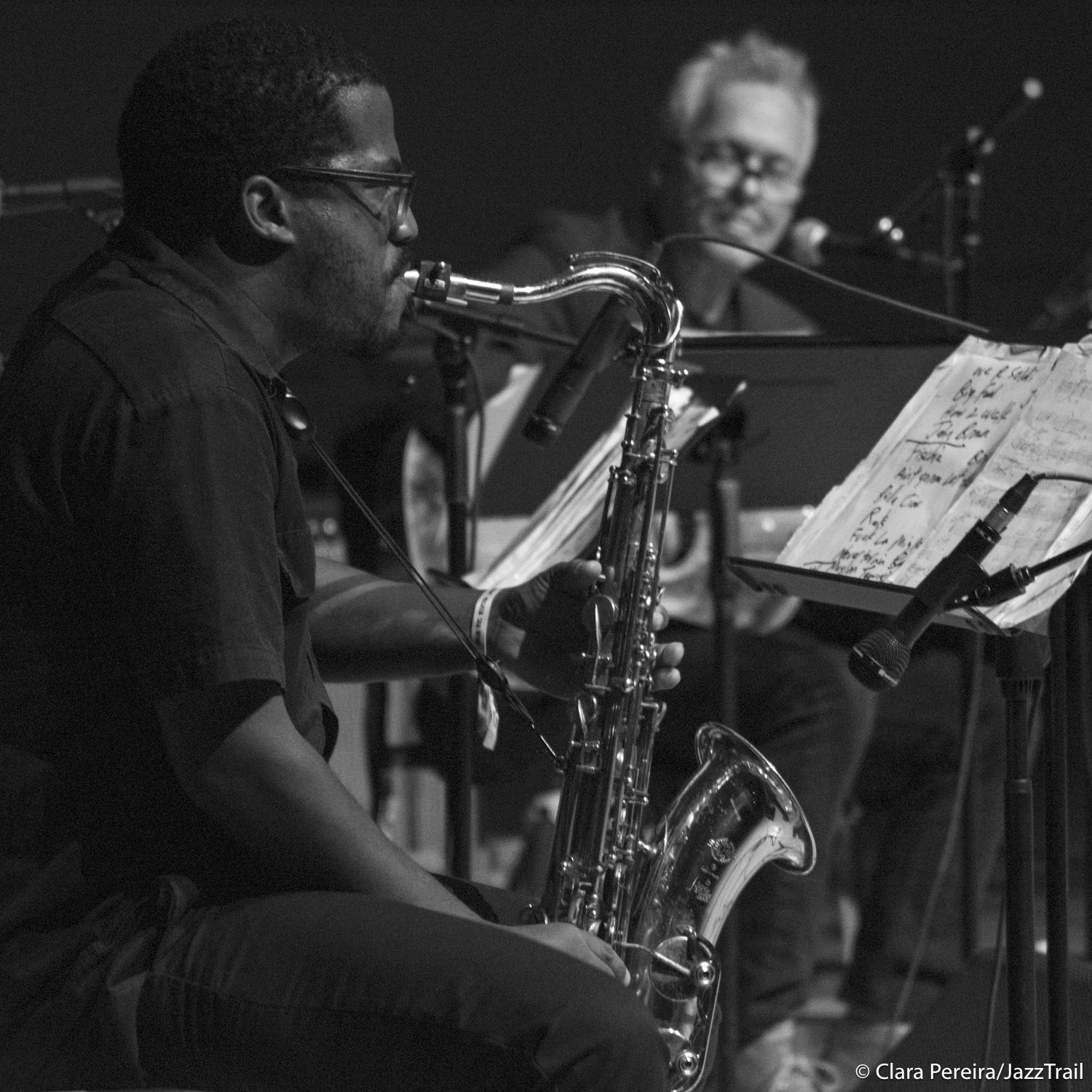
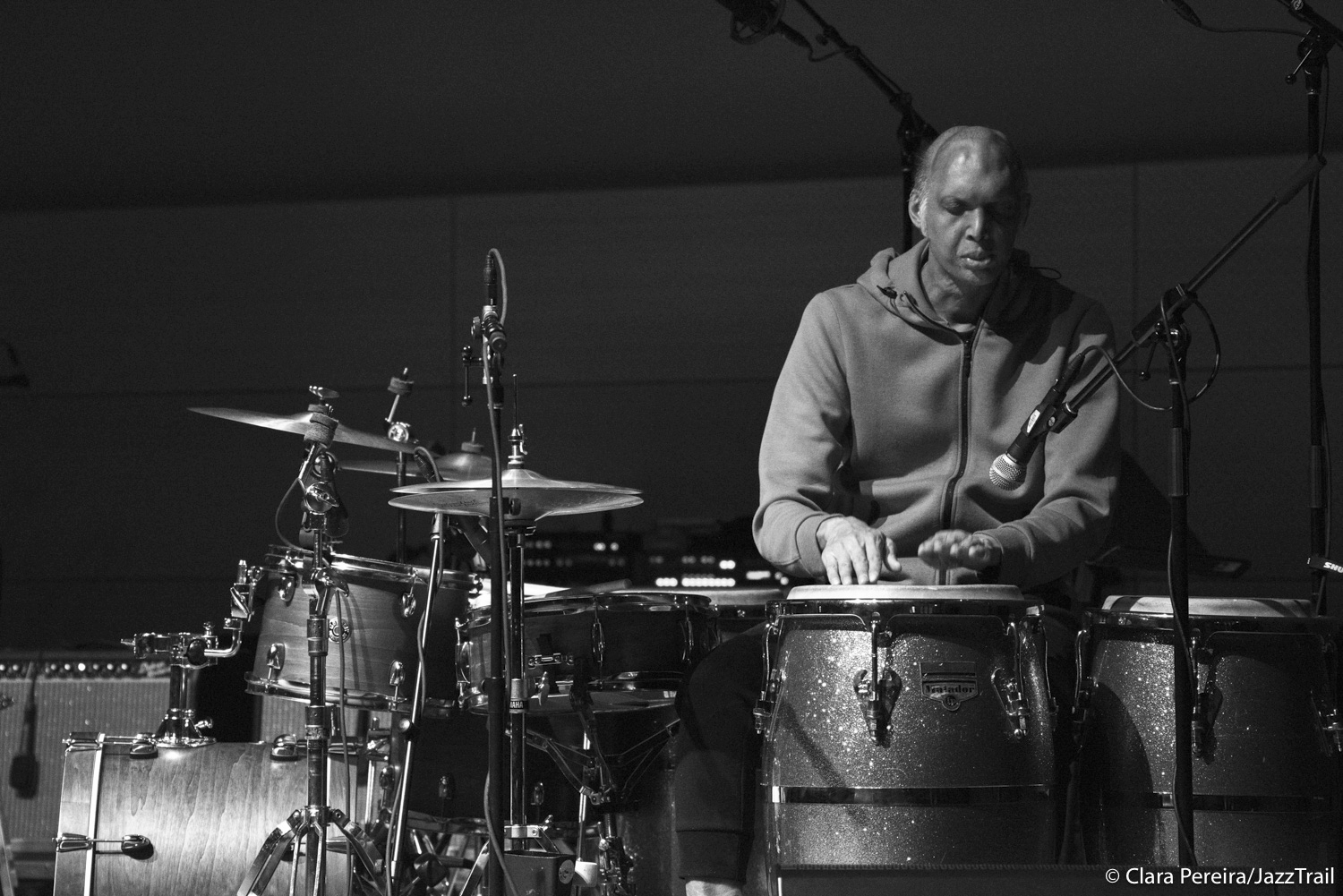
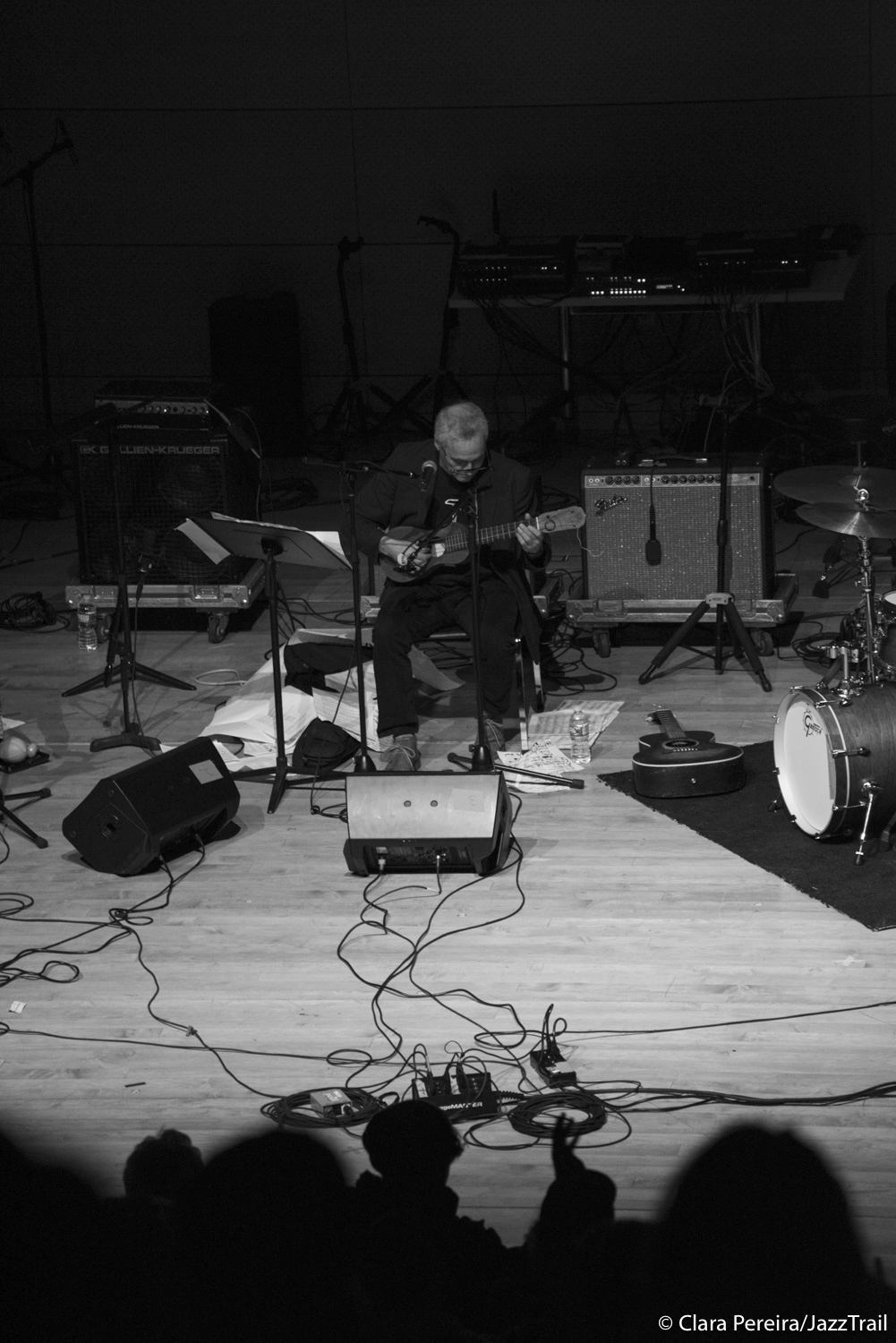
Genre-bending guitarist Marc Ribot, a true revolutionary, presented his acoustic project Songs of Resistance, inspired by the current state of affairs, with Domenica Fossati on background vocals and flute, two saxophonists (James Brandon Lewis included), and percussionist Shahzad Ismaily. Adopting a freewheeling attitude, Ribot delivered avant-folk interpretations of resistance songs, many of them taken from the Civil Rights movement, but not limited to North America. He delivered renditions of an Italian piece called “Bella Ciao” and a Mexican one, “Rata De Dos Patas” by Paquita La Del Barrio, a vicious, political piece under the guise of romantic ballad, which he dedicated to Donald Trump. It was a powerful concert that incited people to stand one’s ground, stay together, and never abdicate from their freedom.
BRANDON ROSS' FOR LIVING LOVERS
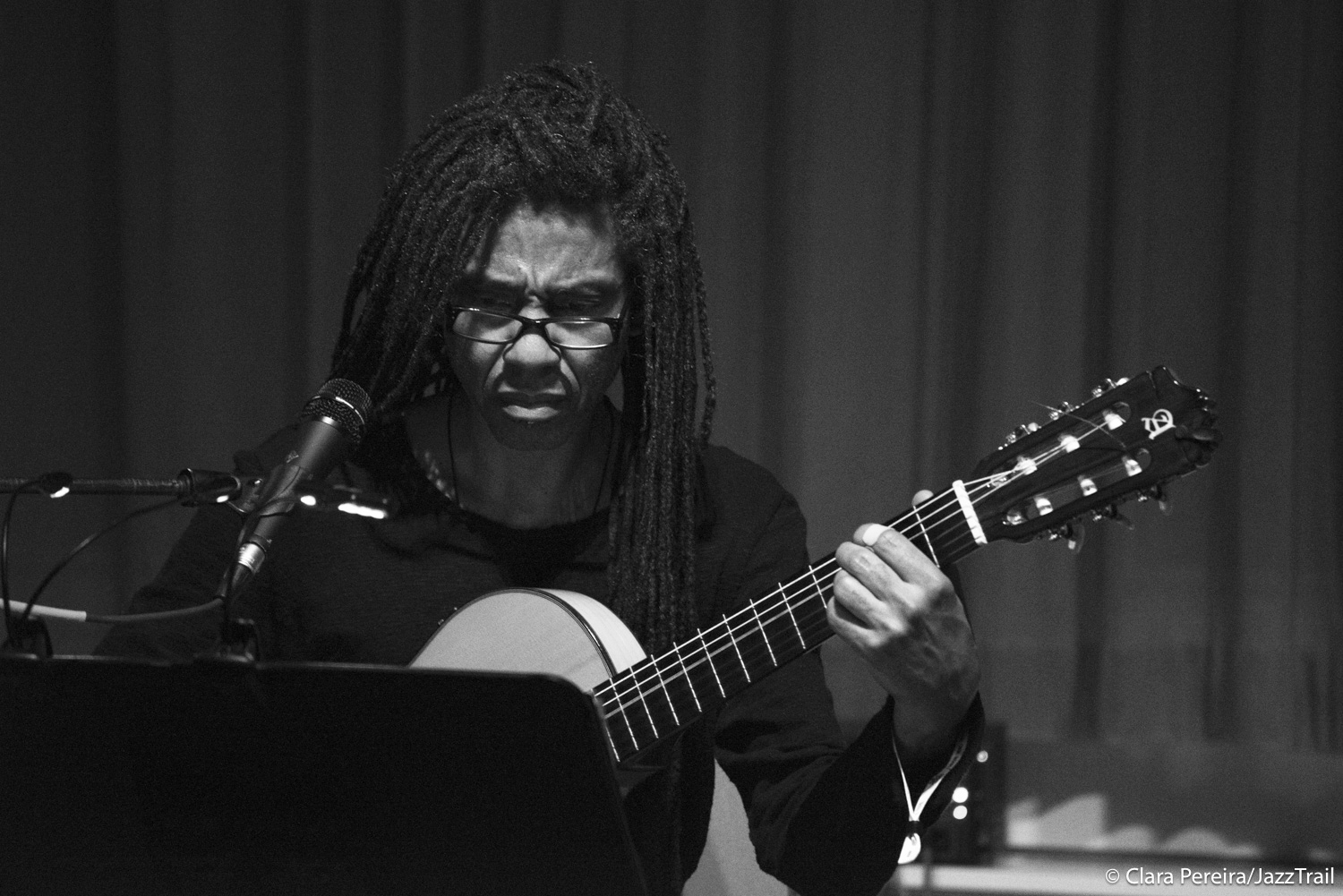
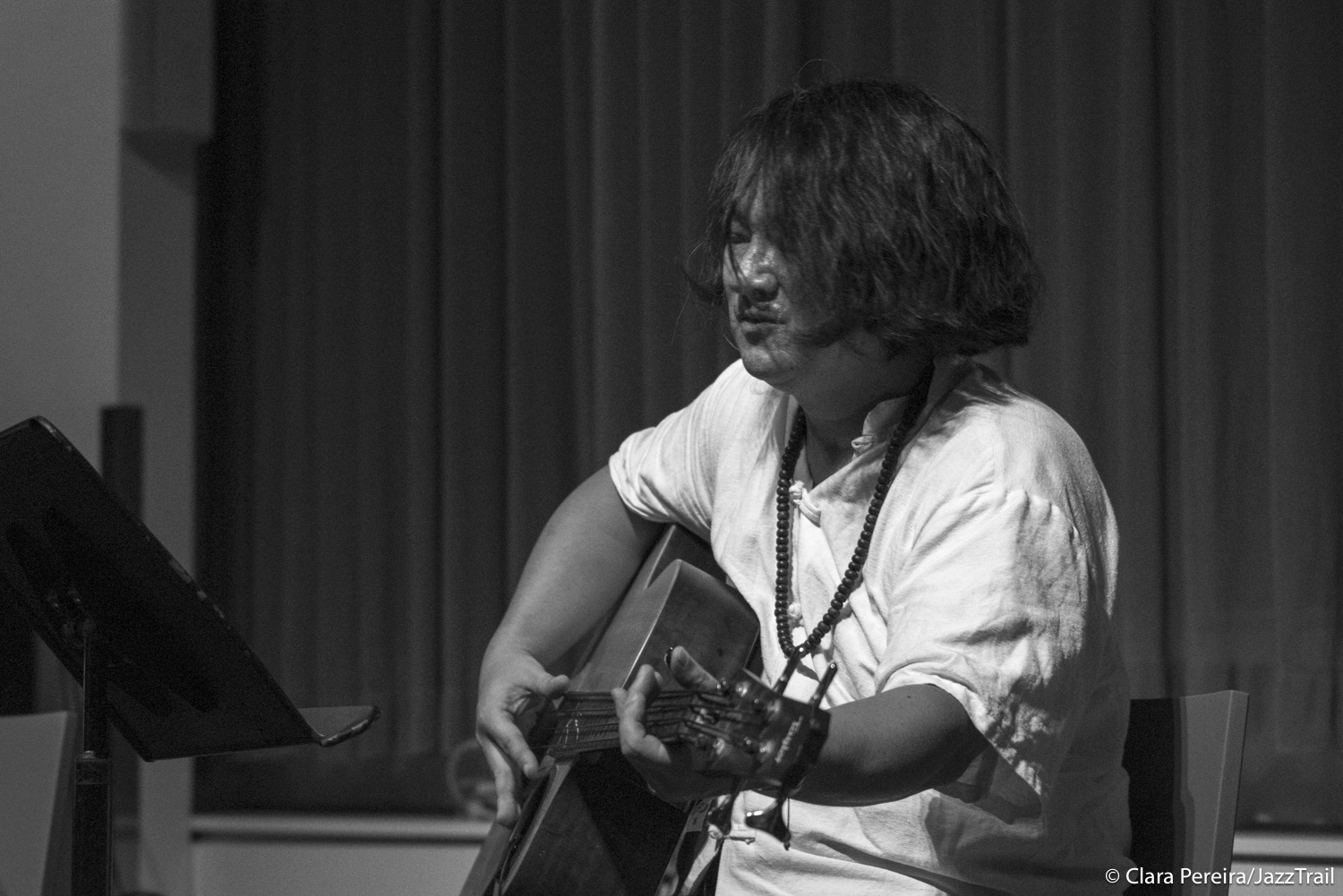
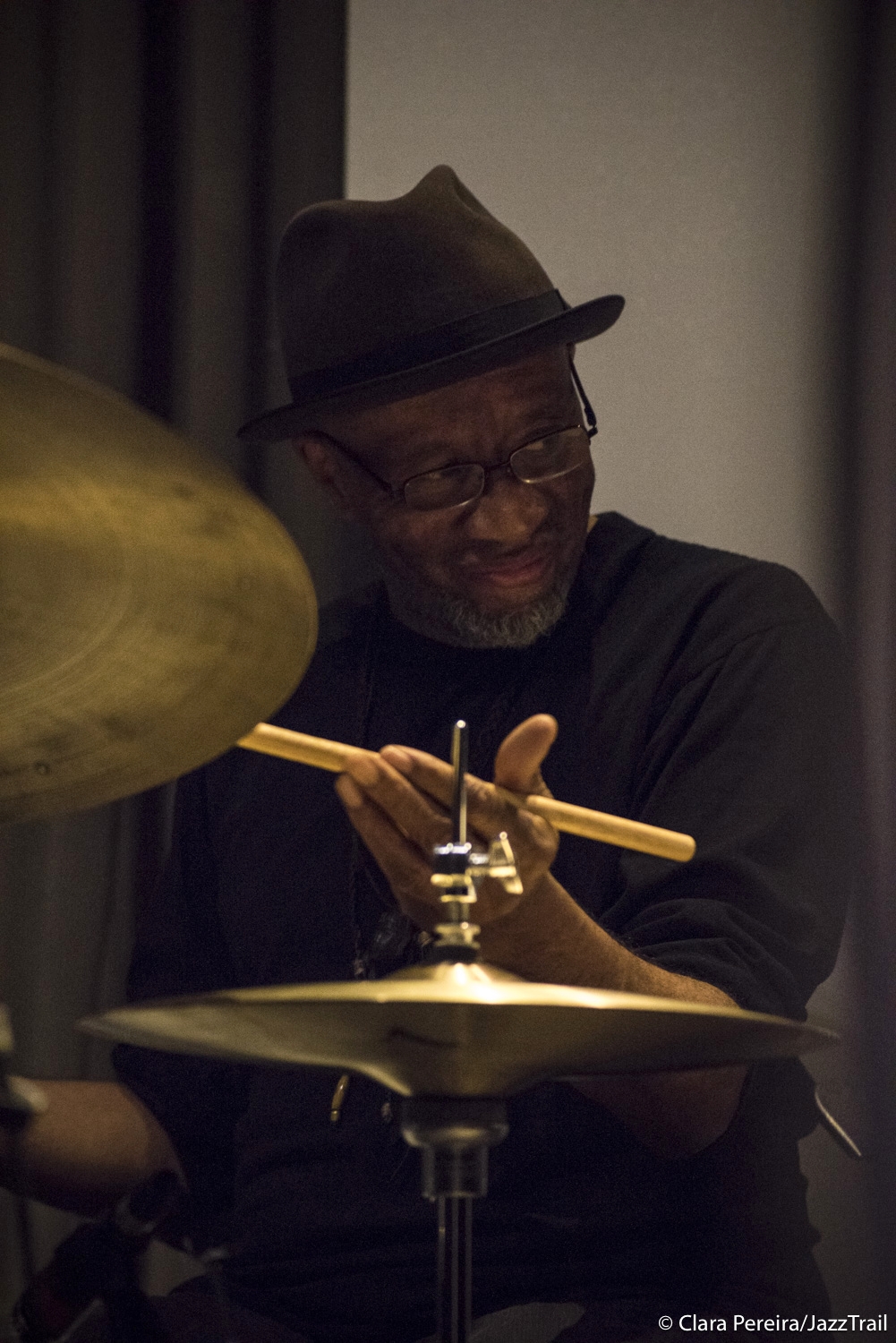
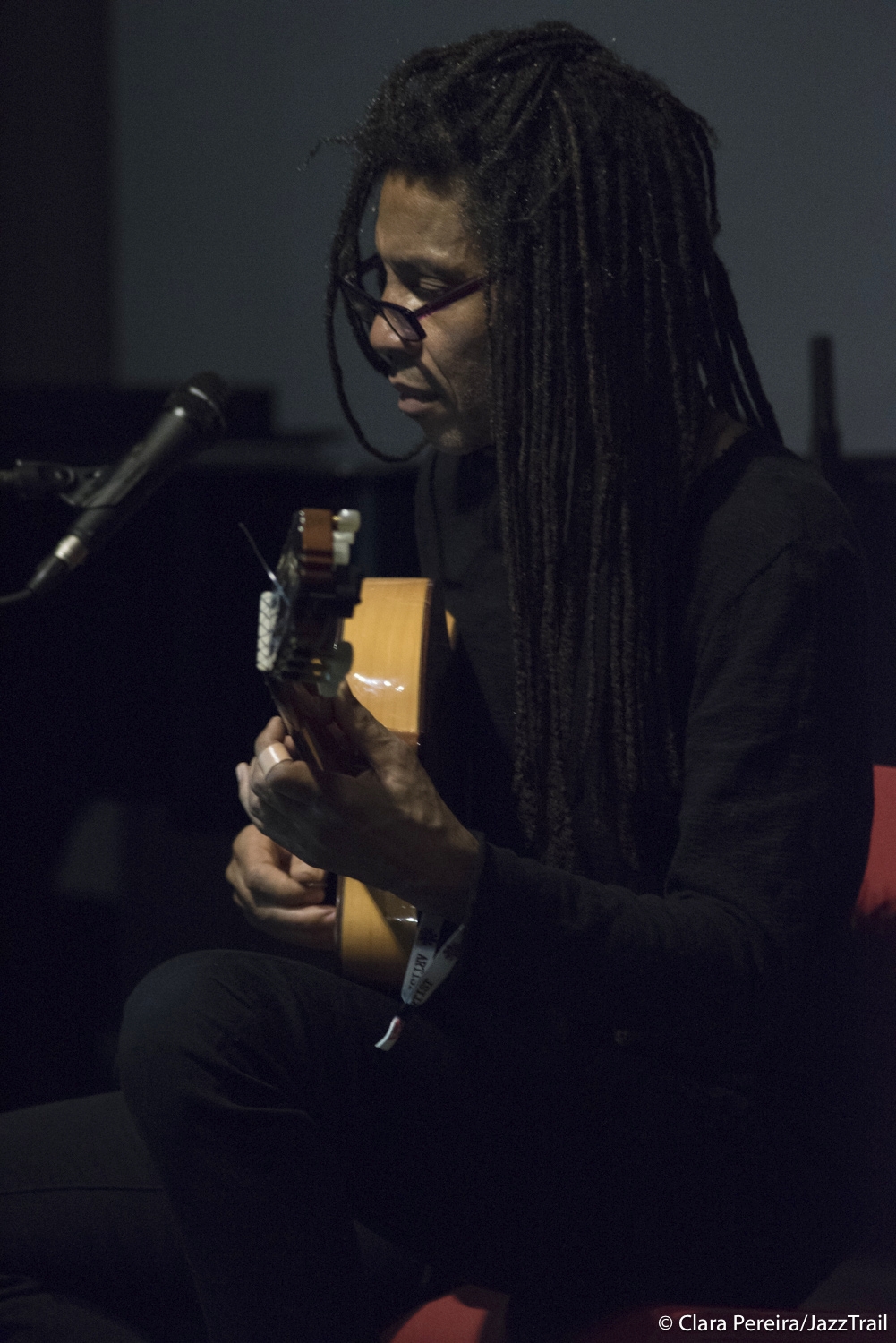
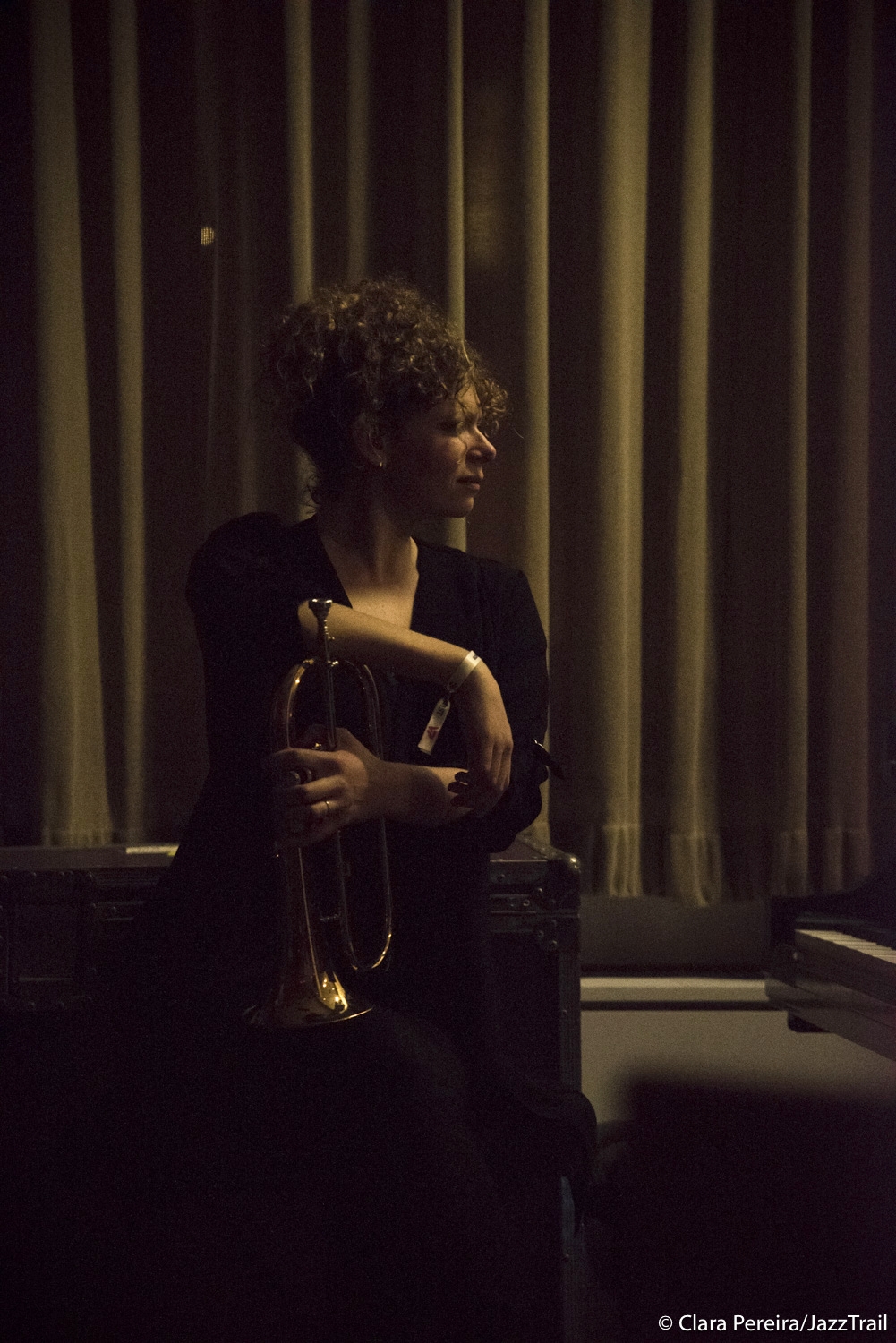
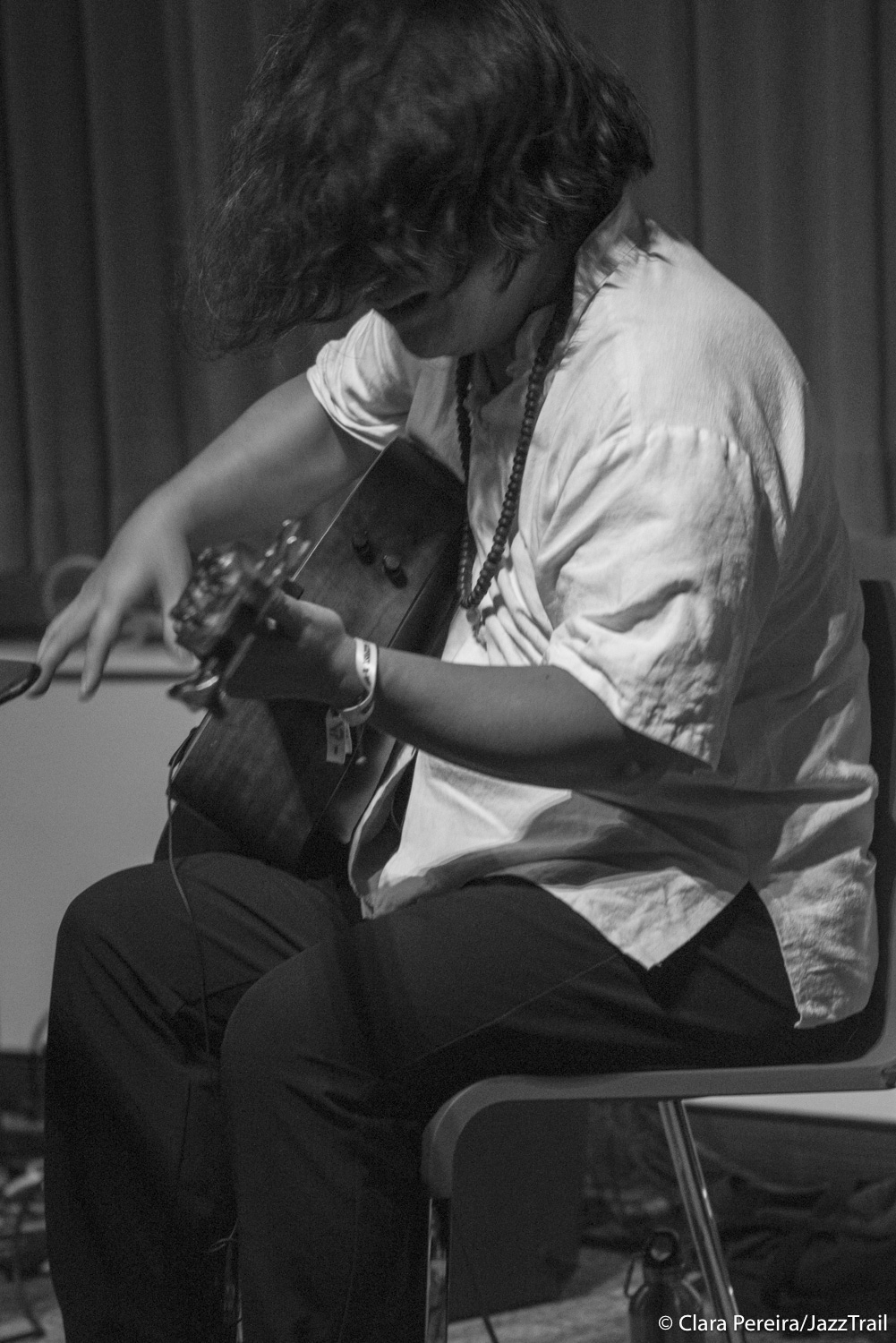
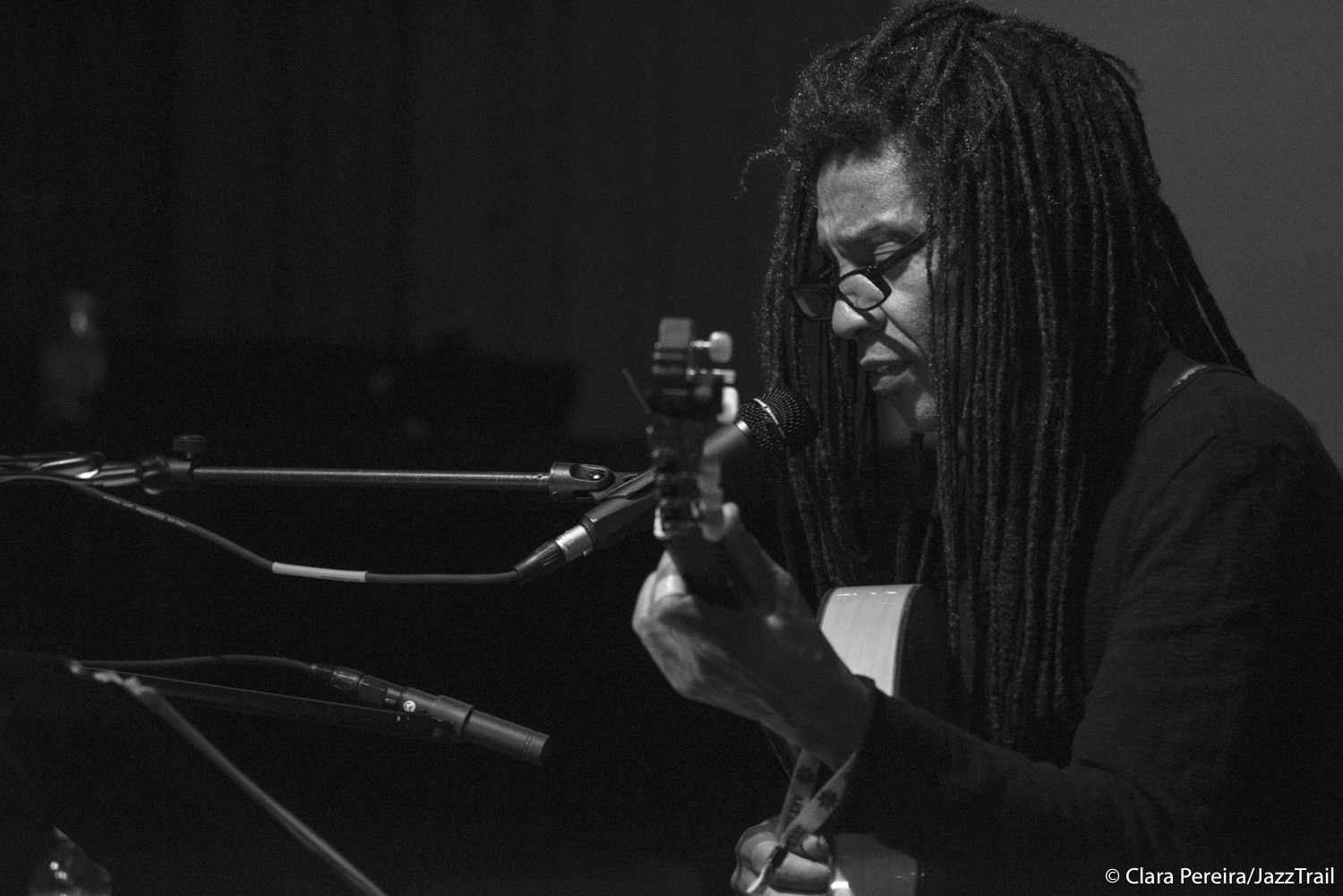
Guitarist/vocalist Brandon Ross, who also played with Harriet Tubman in this festival, presented his For Living Lovers duo project with the Japanese bassist Stomu Takeishi, here extended to a quartet with the addition of trumpeter Stephanie Richards and drummer JT Lewis. A series of musical vignettes inspired by the work of Venezuelan artist Carolina Munoz were performed with an experimental feeling and original style. Layered with strangeness and often encompassing dark and vague moods, the music had the vocalized poem “Name As Light” and the rhythmically adventurous “Hammer” as highlights.
JAMES BRANDON LEWIS' UNRULY NOTES
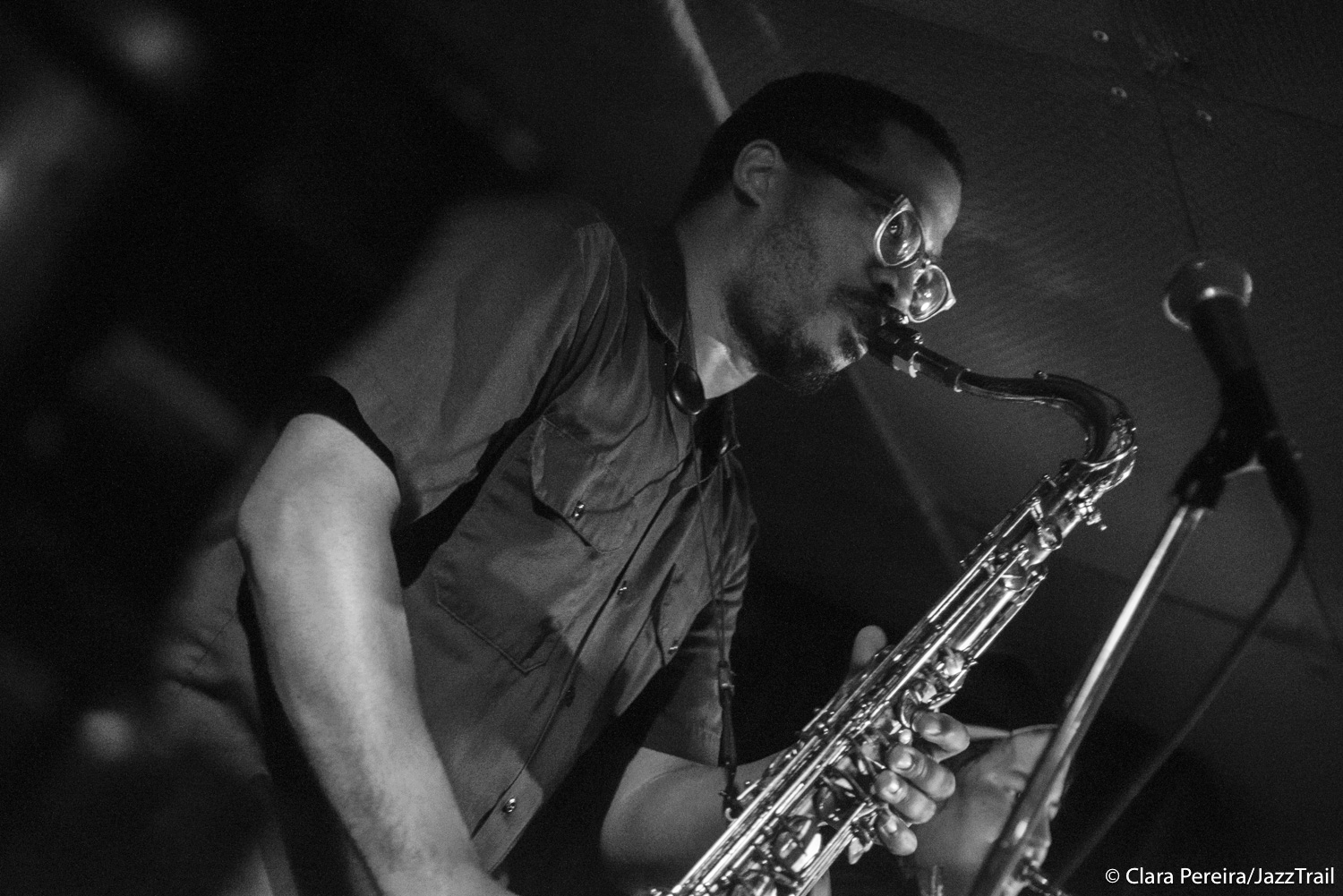
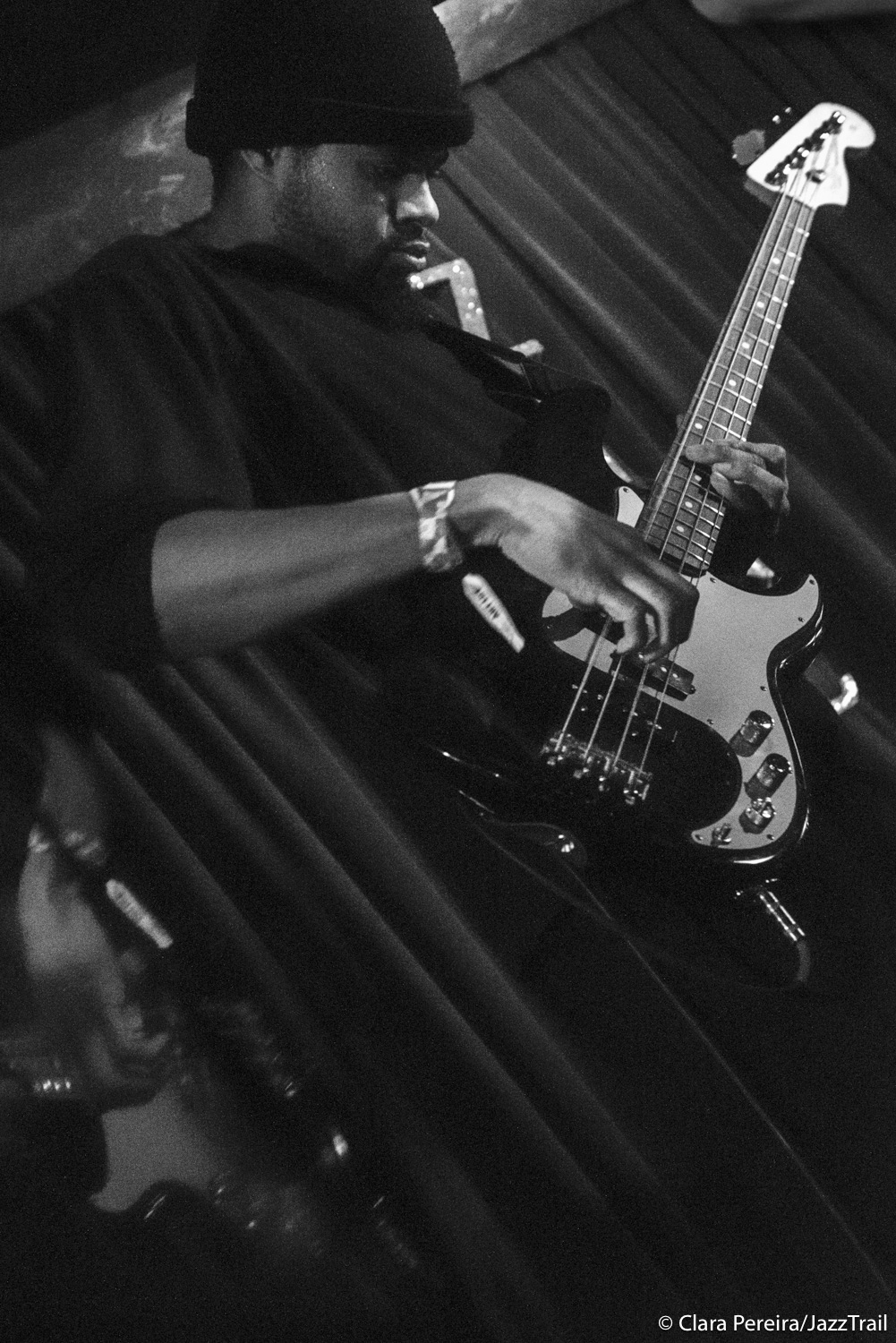
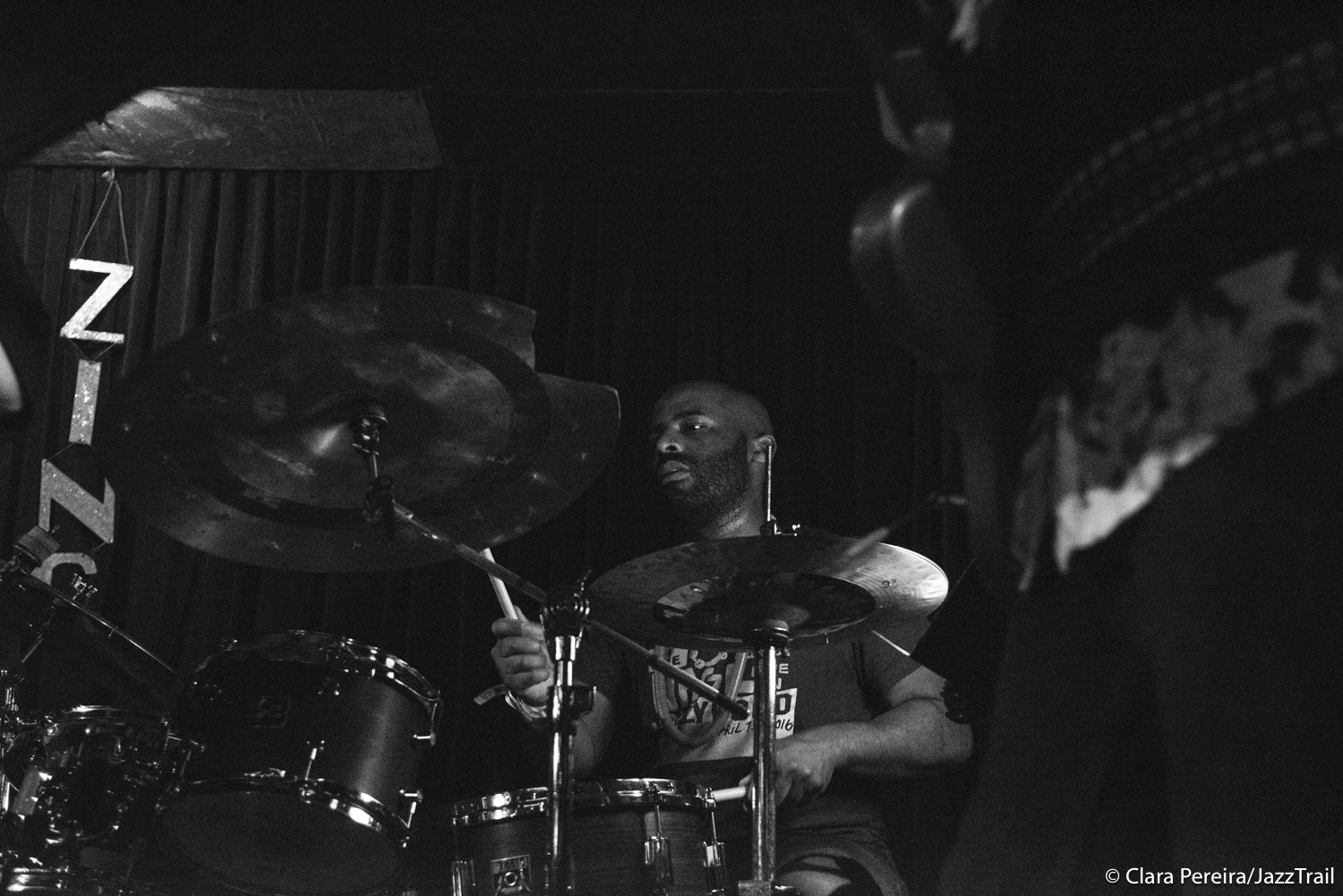
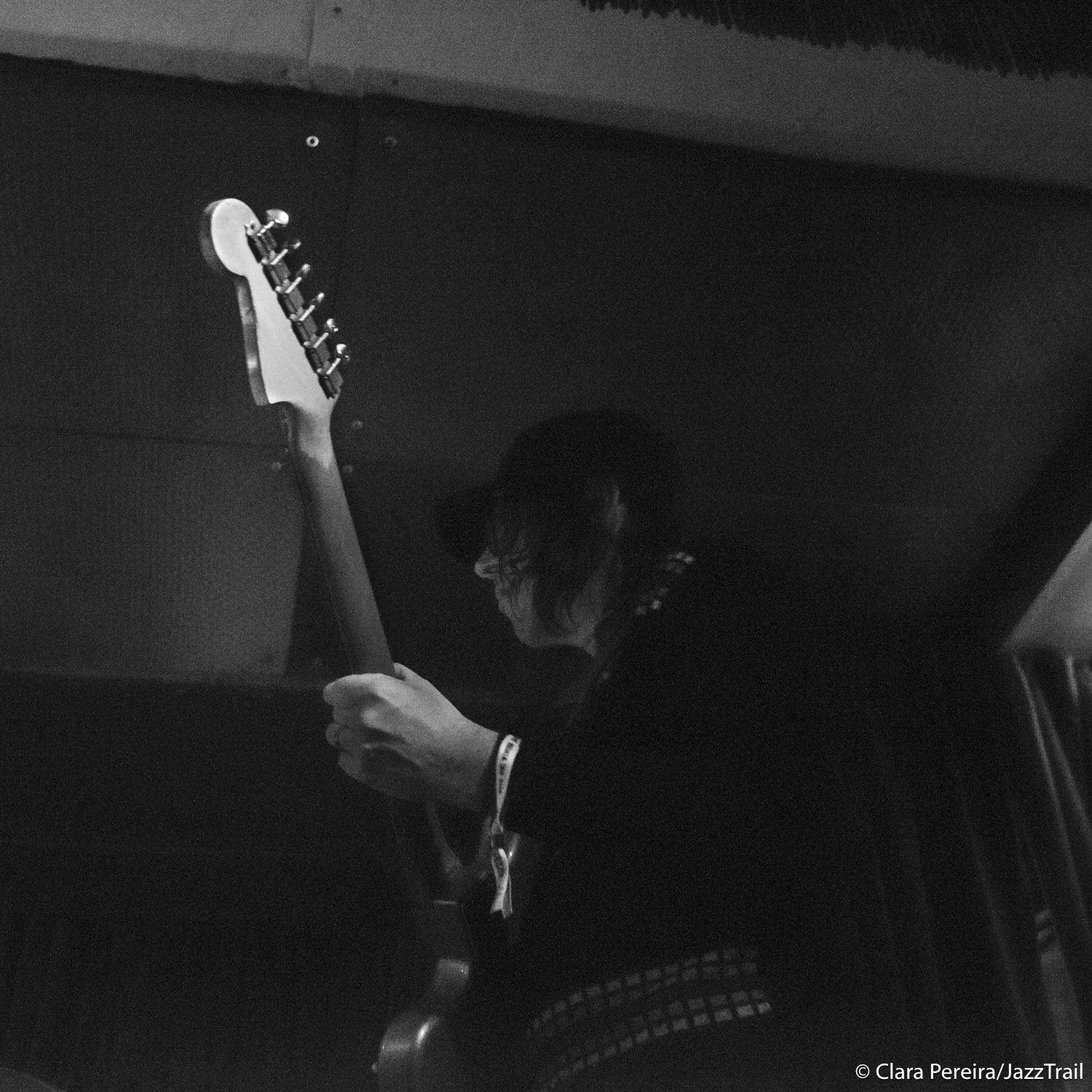
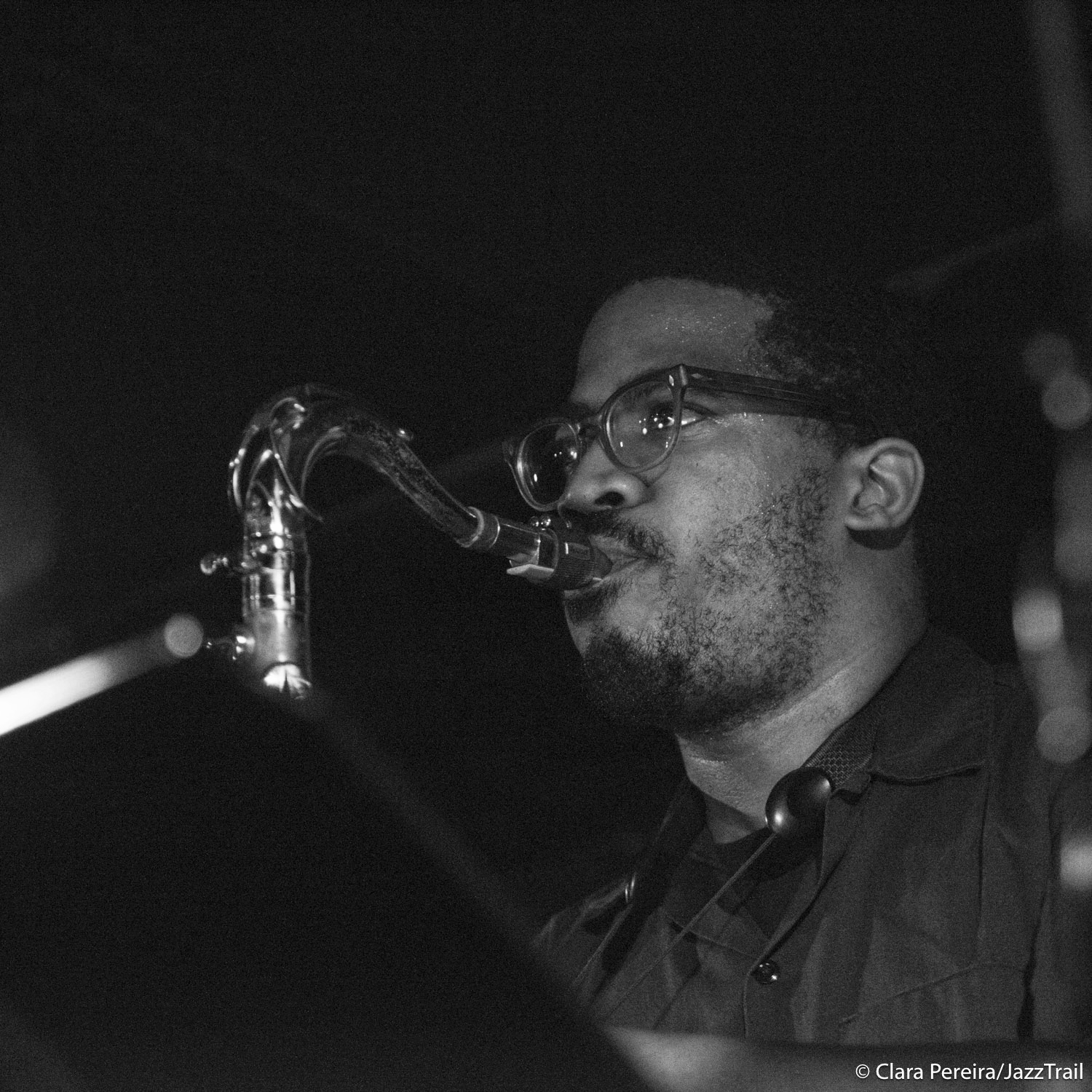
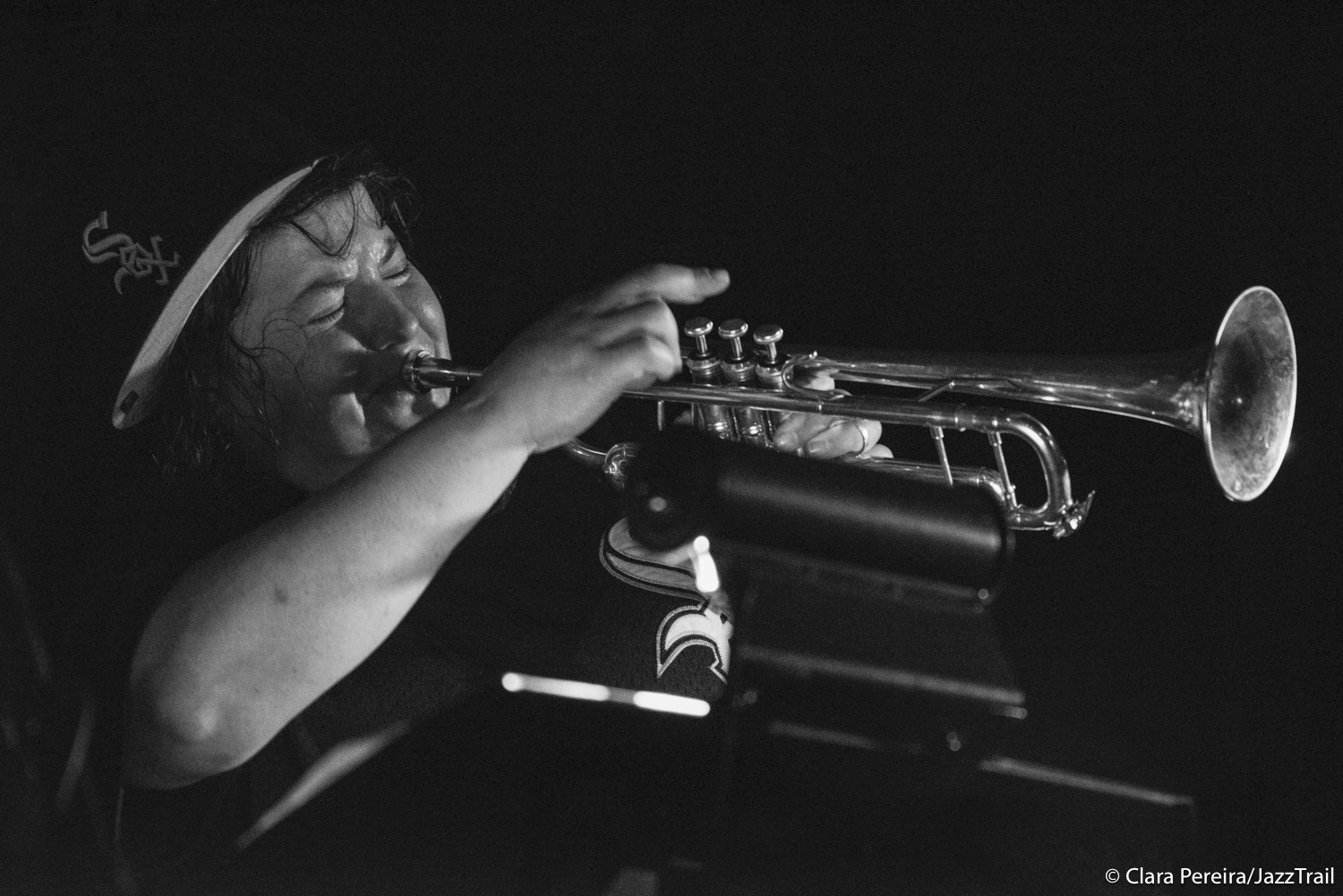
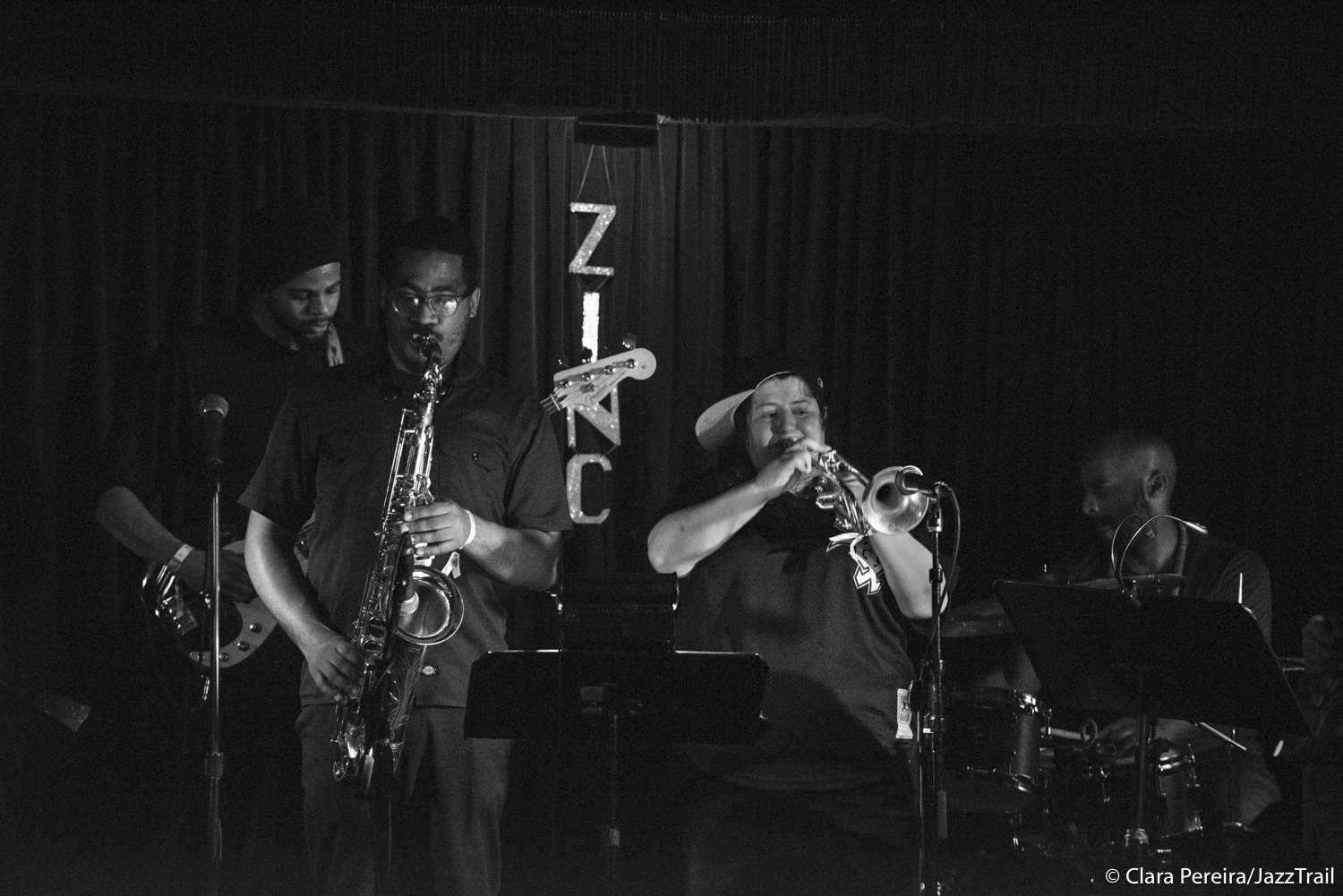
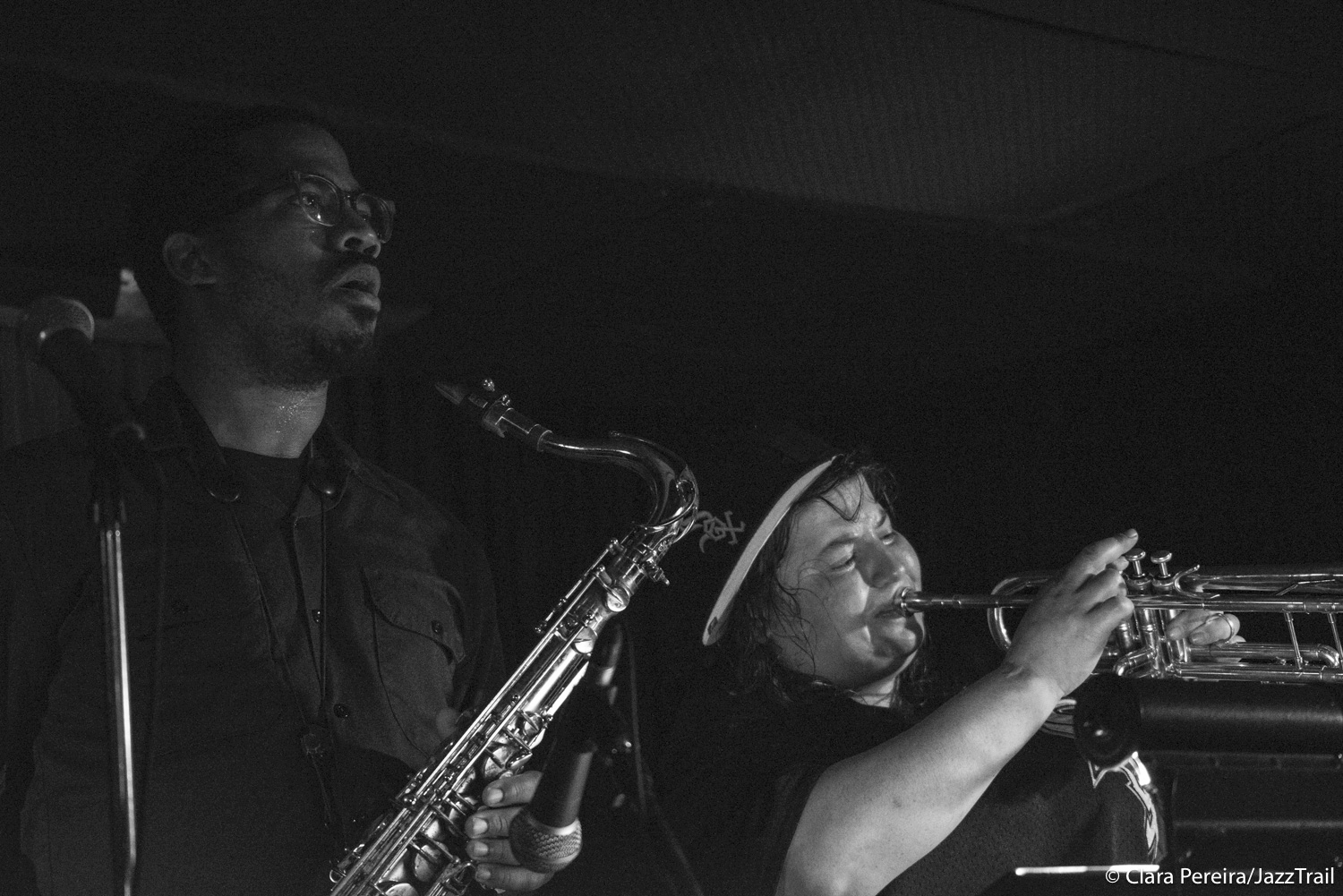
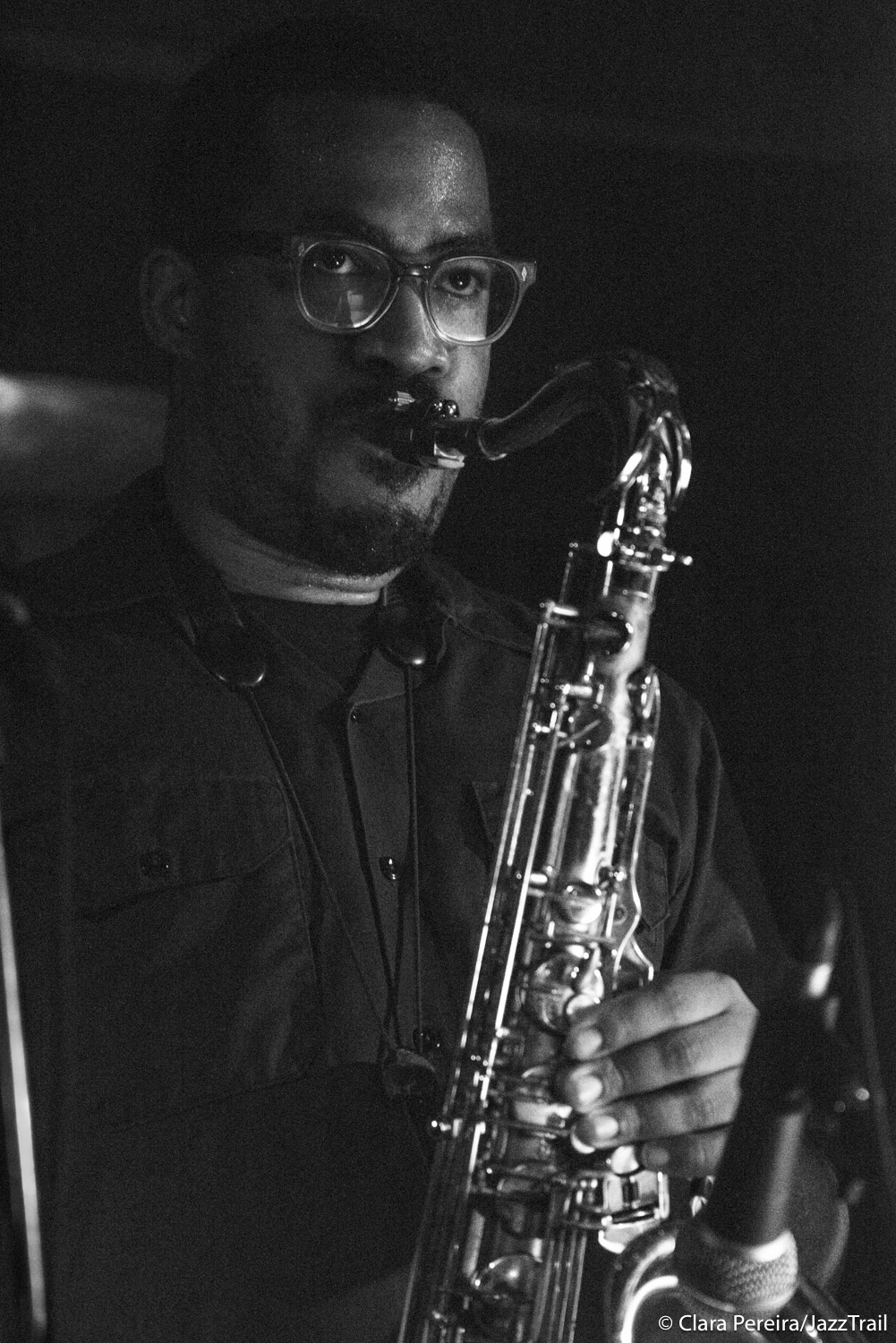
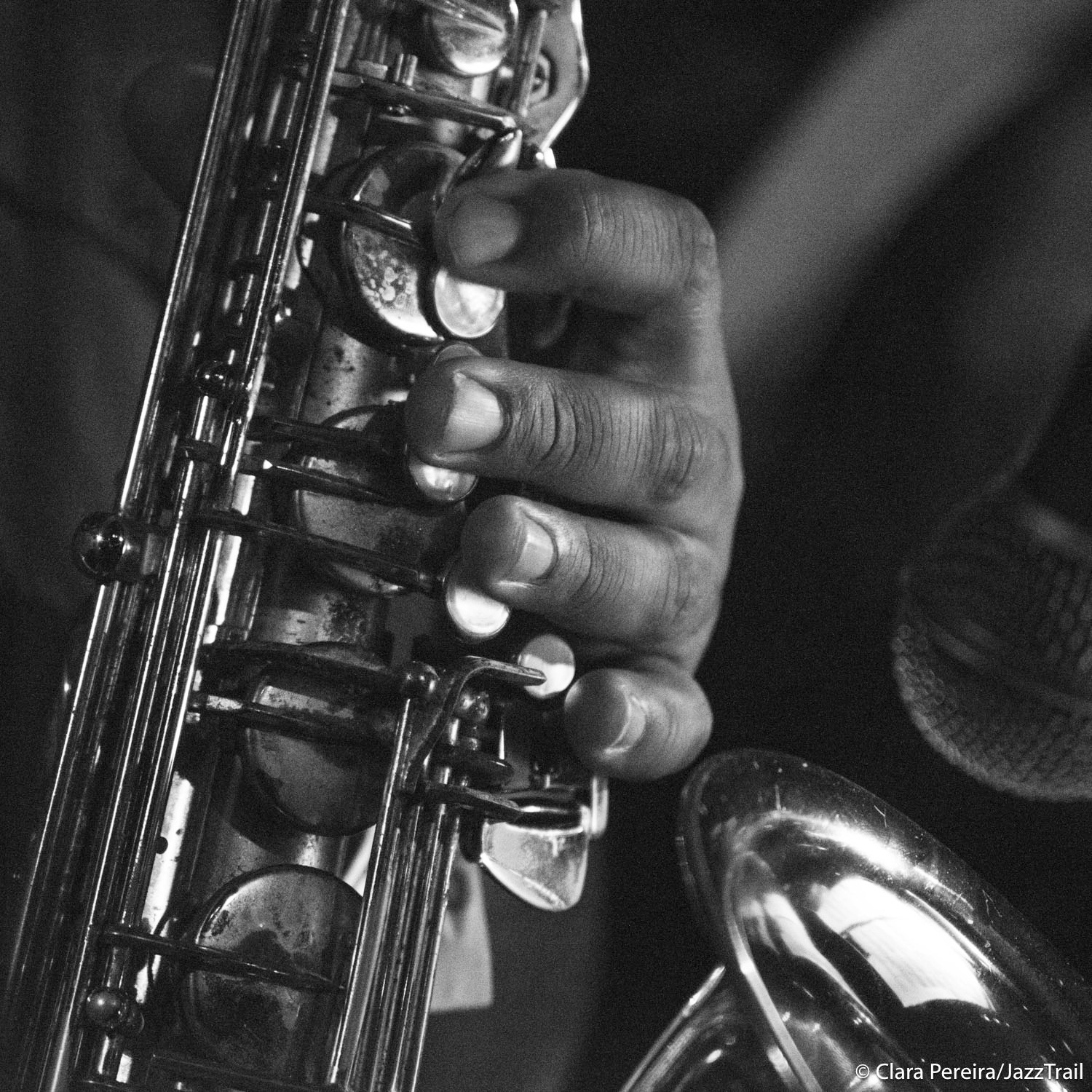
We concluded this unusually warm night at Zinc Bar, where the saxophonist James Brandon Lewis showed his authoritative power, well accompanied by the emerging trumpeter Jamie Branch, the stylistic guitarist Anthony Pirog, and the habitual rhythm section of his trio, composed of bassist Luke Stewart and drummer Warren Trae Crudup III. Having fun, the quintet transformed all their musical verve into a fluid positive energy that was totally absorbed by the effusive audience. Cathartic and kaleidoscopic, Lewis’ jazz varied in tone and rhythm, including devotional clamors, funky grooves impregnated with power, melody-driven dedications (for Charlie Haden), occasional collective riffs over energetic rhythms, and a pocketful of fiery improvisations that easily mirror the creative freedom defended by these adroit musicians.
